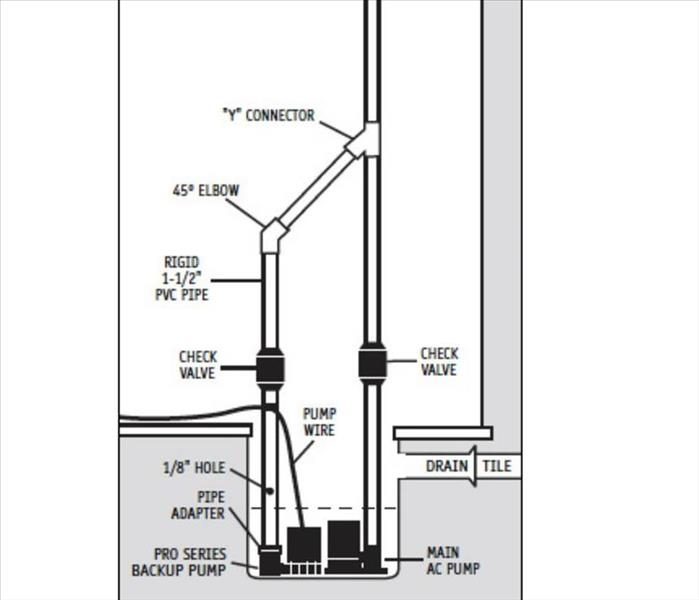Recent Storm Damage Posts
Tips for Staying Safe During Winter Storm Power Outages in Warren, Michigan?
2/18/2025 (Permalink)
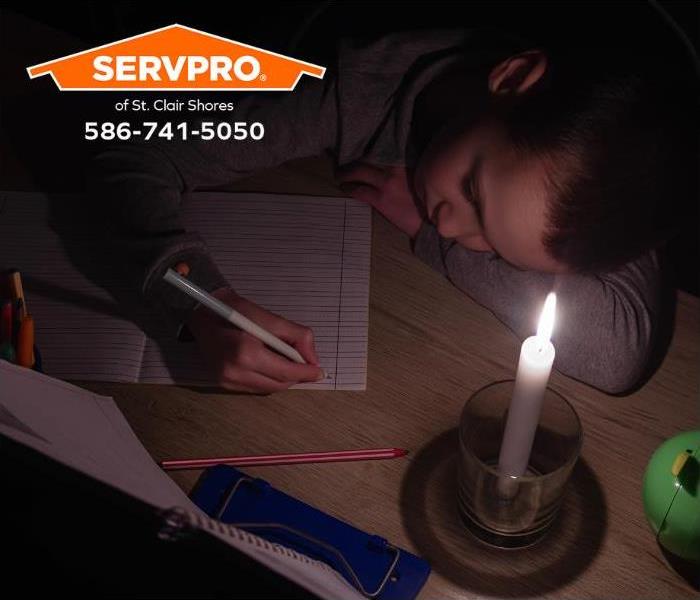 We respond to storm damage emergencies 24/7 in Macomb County.
We respond to storm damage emergencies 24/7 in Macomb County.
Our local St. Clair Shores team is trained and certified to restore property damage caused by winter storms. Winter storms in Warren often bring heavy snow, ice, and strong winds that can knock out power for hours or even days. Without electricity, homes lose access to heat, lighting, and essential appliances, creating potentially dangerous situations. Preparing ahead of time can make all the difference in staying safe and comfortable during a power outage.
First, assemble an emergency kit with flashlights, batteries, bottled water, non-perishable food, blankets, and a battery-powered phone charger. A portable generator can also be helpful but should always be used outdoors to prevent carbon monoxide poisoning.
Monitor updates from local utilities to stay informed about power restoration efforts. To retain warmth, close off unused rooms and cover windows with blankets or heavy drapes. If the power outage lasts more than a few hours, consider relocating to a shelter or warming center to avoid prolonged exposure to freezing temperatures.
Once the storm passes in Warren, inspect your home for damage caused by the outage or storm. Address any issues, such as frozen pipes or damaged roofing, promptly to prevent further problems. Being prepared ensures safety and peace of mind when winter storms hit.
Call Us Today!
When your home or commercial business in Warren sustains storm damage, our local St. Clair Shores team is Here to Help. ® Call us today at 586-741-5050.
SERVPRO® franchises are independently owned and operated.
Summer Storms Damage Properties in Grosse Pointe Shores?
8/6/2024 (Permalink)
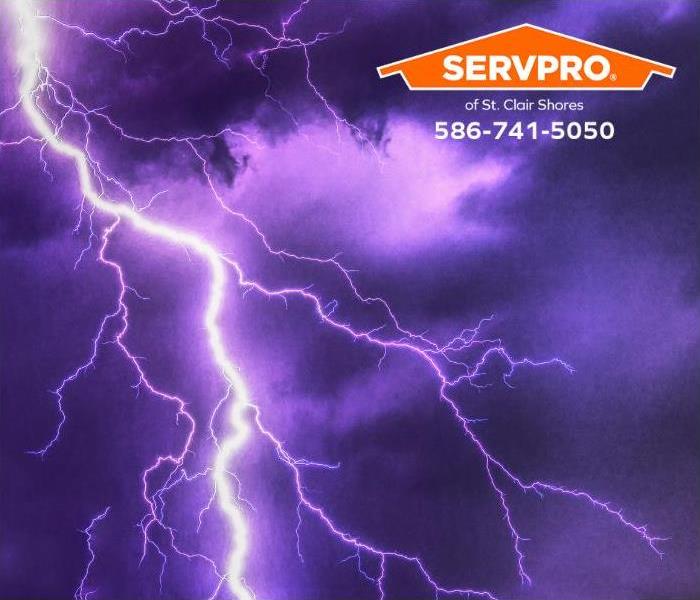 We restore storm damage 24/7 in Macomb County.
We restore storm damage 24/7 in Macomb County.
Our local St. Clair Shores team has been restoring storm damage in the Grosse Pointe Shores area for many years. Grosse Pointe Shores, located on the shores of Lake St. Clair, faces unique challenges from summer storms. The lake's proximity influences weather patterns, often intensifying storms and increasing the potential for damage. Thunderstorms can develop rapidly during the summer, bringing heavy rainfall, strong winds, and lightning.
One significant issue is flooding. The area's flat topography and extensive network of canals make it prone to water accumulation during heavy rains. Flooded streets and basements are typical, leading to water damage in homes and businesses. The lake's high water levels can exacerbate this problem, as stormwater has nowhere to drain, causing prolonged flooding and infrastructure damage.
High winds are another concern, often resulting in downed trees and power lines. This disrupts the power supply and poses safety hazards for residents. The lakeshore can experience severe erosion during storms, impacting waterfront properties and public spaces. Local efforts to combat these issues include improving stormwater management systems, reinforcing shoreline protections, and conducting community awareness programs.
Call Us Today!
When your Grosse Pointe Shores home or commercial business has a storm damage emergency, our local St. Clair Shores team is always Here to Help. ® Call us today at 586-741-5050.
SERVPRO® franchises are independently owned and operated.
Storm System Unleashes Tornadoes Causing Property Damage in Roseville?
7/1/2024 (Permalink)
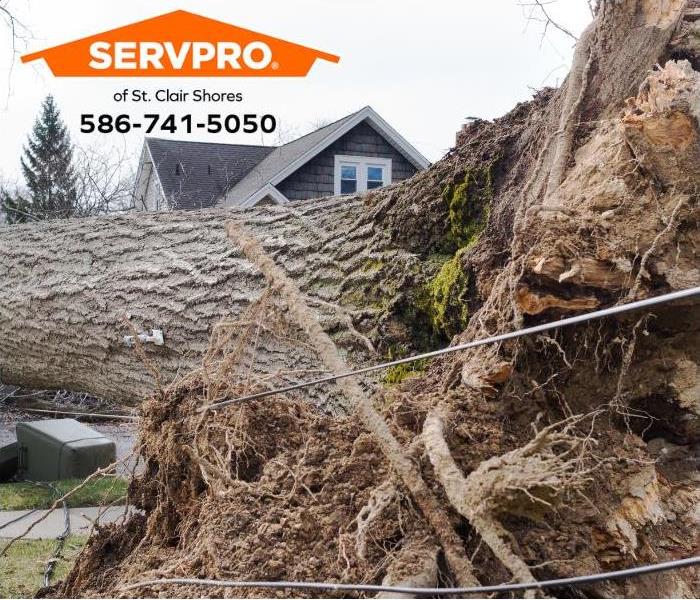 We restore storm damage 24 hours a day in Macomb County.
We restore storm damage 24 hours a day in Macomb County.
According to the State of Michigan website, Michigan has 15 tornadoes per year. They can develop rapidly, and winds can reach over 200 miles-per-hour. Our local St. Clair Shores team is on call and ready to respond to storm damage emergencies 24 hours a day in Roseville.
Here are some tips for staying safe during a tornado:
- If you are under a tornado warning, seek shelter immediately! Most injuries associated with high winds are from flying debris, so remember to protect your head.
- If you are in a school, nursing home, hospital, factory, shopping center, or high-rise building then:
- Go to a pre-designated area such as a safe room built to FEMA criteria, basement, storm shelter or the lowest building level. If there is no basement, go to the center of a smaller interior room, such as a closet or hallway, that is away from corners, windows, doors and outside walls. Put as many walls as possible between you and the outside. Get under a sturdy table and cover your head and neck with your arms and cover your body as best you can e.g., with a heavy coat or blankets, pillows.
- In a high-rise building, go to a small interior room or hallway on the lowest floor possible.
- Do not open windows.
Call Us Today!
When your Roseville home or business needs storm damage restoration services, our local St. Clair Shores team is Here to Help. ® Call us today at 586-741-5050.
SERVPRO® franchises are independently owned and operated.
Roseville Home Damaged by Spring Storm?
4/2/2024 (Permalink)
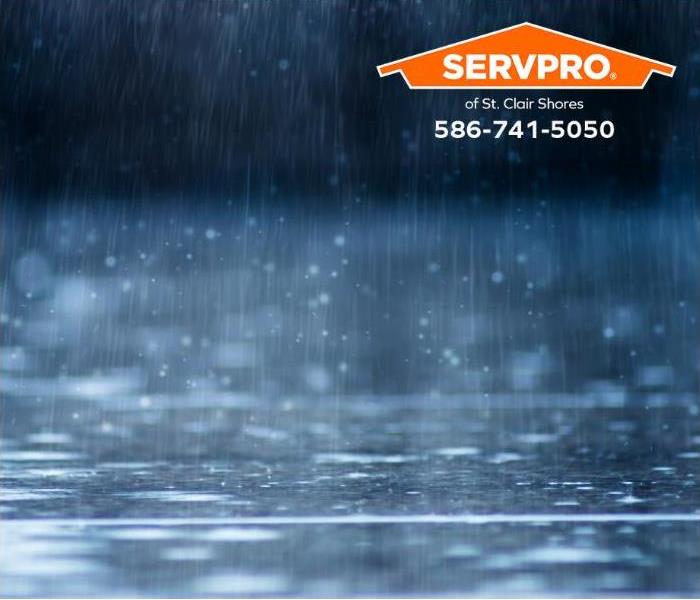 We restore storm damage 24 hours a day in Macomb County.
We restore storm damage 24 hours a day in Macomb County.
Our local St. Clair Shores team responds to storm damage emergencies throughout the year in Roseville. During the spring, storms can bring various hazards that may cause property damage. While the severity of these storms can vary, several types of spring storms can pose risks to residents and properties:
Severe Thunderstorms
Severe thunderstorms are common during the spring months in Michigan. These storms can bring strong winds, hail, lightning, and heavy rainfall. High winds associated with severe thunderstorms can cause damage to roofs, siding, trees, and outdoor structures like fences and sheds. Hail can also cause damage to vehicles, windows, and roofing materials.
Flooding
Spring storms can bring heavy rainfall, leading to flooding in low-lying areas and areas with poor drainage. Urban flooding can occur during intense rain events when streets and neighborhoods become inundated with water. Also, rivers and streams may overflow their banks, flooding rivers. Floodwaters can damage homes, basements, and belongings and disrupt transportation and utilities.
Tornadoes
While relatively rare, tornadoes can occur in Michigan during the spring, especially with severe thunderstorms. Tornadoes can cause significant property damage, including destruction of buildings, tree uprooting, and flying debris damage. Residents should have a plan for seeking shelter during tornado warnings and be prepared to take quick action to protect themselves and their property.
Call Us Today!
When your home or commercial business in Roseville sustains storm damage, our local team in St. Clair Shores is Here to Help. ® Call us today at 586-741-5050.
SERVPRO® franchises are independently owned and operated.
Spring Storm Causes Property Damage to Homes in St. Clair Shores?
3/19/2024 (Permalink)
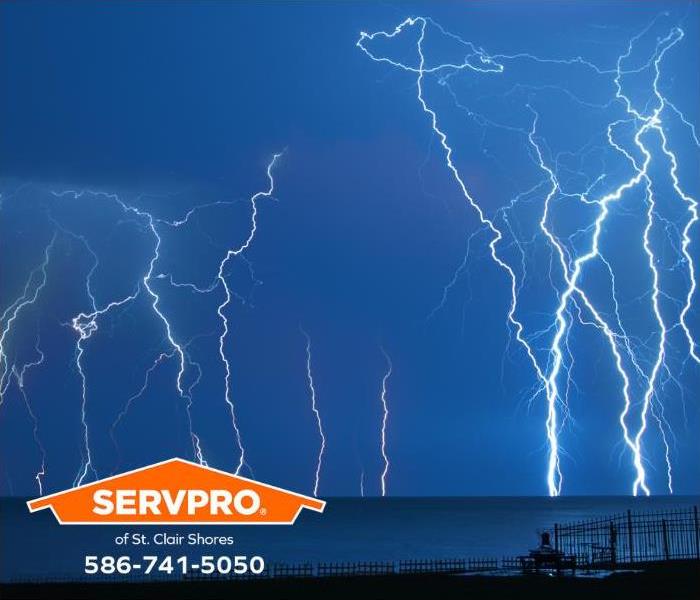 We are leaders in storm damage restoration in Macomb County.
We are leaders in storm damage restoration in Macomb County.
Our local St. Clair Shores team responds to storm damage emergencies every year. While spring is generally a transition period from winter to summer, here are some common types of storms and weather phenomena that can take place during this season:
Thunderstorms: Spring is a season known for the development of thunderstorms.
Tornadoes: While tornadoes are relatively rare in Michigan compared to other parts of the United States, they can occur, particularly in the spring and early summer.
Rainstorms: Spring often brings increased rainfall, leading to heavy rainstorms. Prolonged periods of rain can result in flooding, especially in low-lying areas and regions with poor drainage.
Snowstorms: In the early spring months, especially March, it's possible to experience snowstorms as winter transitions to spring. These storms can bring snow accumulation, icy conditions, and travel disruptions.
Lake Effect Snow: St. Clair Shores is located near Lake St. Clair and Lake Huron, so lake effect snow can still occur in the early spring when cold air interacts with the relatively warmer lake waters. This can result in localized heavy snowfall in the area.
Windstorms: Spring can also bring strong windstorms, which may not necessarily be accompanied by precipitation but can still cause property damage and power outages.
Call Us Today!
When your home or commercial business has storm damage, our local team in St. Clair Shores is Here to Help. ® Call us today at 586-741-5050.
Warren Residents Rely on Us to Restore Storm Damage?
1/3/2024 (Permalink)
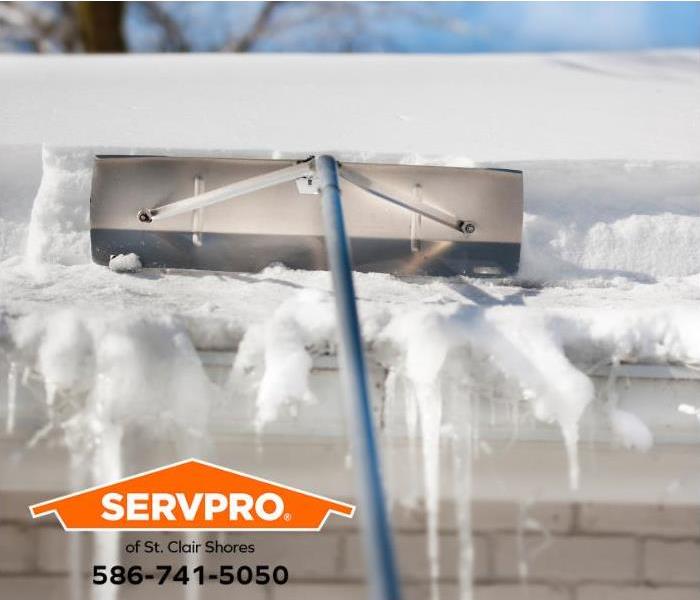 We are leaders in storm damage restoration services in Macomb County.
We are leaders in storm damage restoration services in Macomb County.
Our local St. Clair Shores team mitigates and restores storm damage often during the winter months in Warren. Snow accumulation on roofs can lead to property damage as follows:
Structural Damage: The weight of snow can place significant stress on a roof's structure. Over time, the sheer weight of accumulated snow can lead to roof collapse, especially if the roof is old or poorly maintained.
Ice Dams: When snow on the roof melts and refreezes at the eaves, it can create ice dams. Ice dams prevent further melting snow from draining off the roof, leading to water backup under shingles. This can result in leaks, water damage, and even mold growth inside the home.
Roof Leaks: As snow melts during the day and refreezes at night, it can expand and contract, causing damage to roofing materials. This can result in small cracks and openings that allow water to penetrate the roof, leading to leaks.
Gutter and Downspout Damage: The weight of accumulated snow and ice can damage gutters and downspouts, causing them to sag, detach, or break away from the roofline. This can impact drainage and potentially lead to water intrusion.
Fascia and Soffit Damage: Snow accumulation can put pressure on the fascia and soffit, potentially causing damage and creating opportunities for water to enter the home.
Water Damage: As snow melts, it can flow underneath shingles or roofing materials, causing water damage to the roof's underlayment and insulation.
Call Us Today!
When your Warren home or commercial business has a storm damage emergency, our local team in St. Clair Shores is Here to Help. ® Call us today at 586-741-5050.
SERVPRO® franchise is independently owned and operated.
September is National Preparedness Month in St. Clair Shores?
9/5/2023 (Permalink)
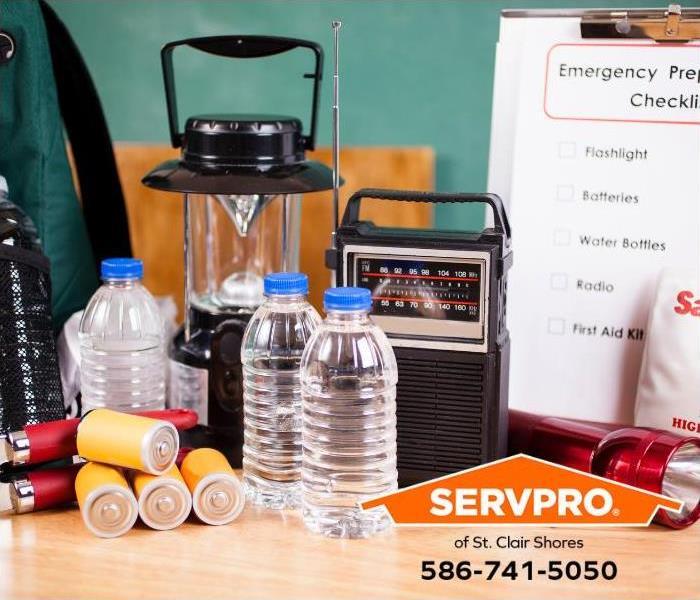 We are leaders in disaster and storm damage mitigation and restoration services in Macomb County.
We are leaders in disaster and storm damage mitigation and restoration services in Macomb County.
Our local St. Clair Shores team has been restoring storm damage for the local St. Clair Shores community for many years. Storms and disasters can cause severe property damage, so our technicians are on call 24 hours a day, 365 days a year to respond to your call for help.
We are also part of a national network of over 2000 franchises of Disaster Recovery Teams that are strategically placed throughout the United States. These special teams can be mobilized quickly in the event of flooding or any other large-scale disaster or event.
National Preparedness Month
Each September the Federal Emergency Management Agency (FEMA) rolls out awareness campaigns and initiatives to increase public awareness and equip communities and individuals with the resources they need to be prepared for a disaster or emergency. This year’s focus is on elderly populations and making sure they have access to and support in place to meet their special needs as elderly adults. For more information visit https://www.ready.gov/september.
Call Us Today!
When your home or commercial business in St. Clair Shores needs storm or disaster mitigation and restoration services, our local team in St. Clair Shores is Here to Help. ® We’ll restore your property damage “Like it never even happened.” Call us today at 586-741-5050.
Franchises are independently owned and operated.
Our Fast Emergency Time Saves Home in Eastpointe from More Extensive Storm Damage?
8/7/2023 (Permalink)
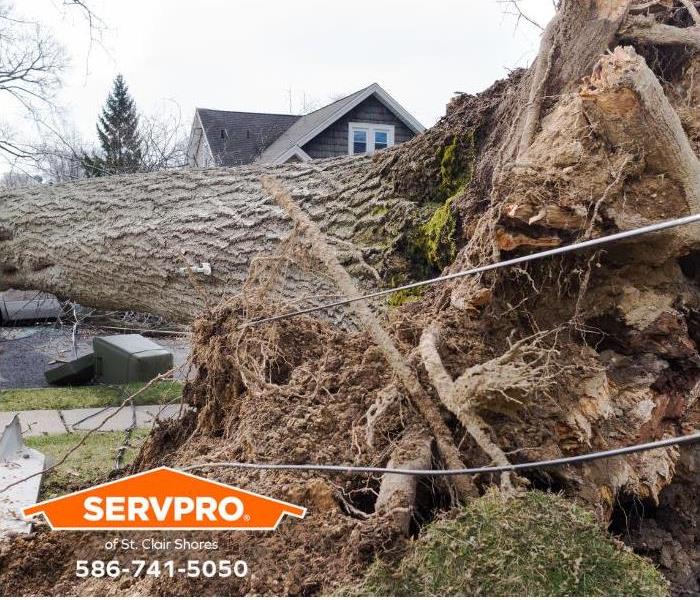 We restore storm damage 24 hours a day in Macomb County.
We restore storm damage 24 hours a day in Macomb County.
Our local St. Clair Shores team has been restoring storm damage in Eastpointe for many years. We know that our fast emergency response time is the key to minimizing the potential for secondary damage and more costly repairs. Here are some of the reasons we are a top choice for storm damage restoration services:
Highly Trained
Our training program includes:
- IICRC Training
- Employee Certification Training
- Initial Franchise Training
- e-Learnings
- Continuing Education Classes
e-Learnings
Ongoing education keeps our office team and technicians current on industry standards and best practices for the cleaning and restoration industry. Everyone on our staff has access to web-based training. This training is voluntary and is a program designed to be an ongoing training series for our employees.
We Follow the One-Four-Eight-Hour Rule
One hour: We will respond to your call within one hour or less
Four hours: We will be onsite within four hours of your call
Eight hours: We will contact your insurance adjuster within eight hours of your call
Call Us Today!
When your home or commercial business in Eastpointe has a storm damage emergency, our local team in St. Clair Shores is Here to Help. ® We’ll restore your storm damage “Like it never even happened.” Call us today at 586-741-5050.
Franchises are independently owned and operated.
Thunderstorms Bring Powerful Winds and Rain to St. Clair Shores?
7/5/2023 (Permalink)
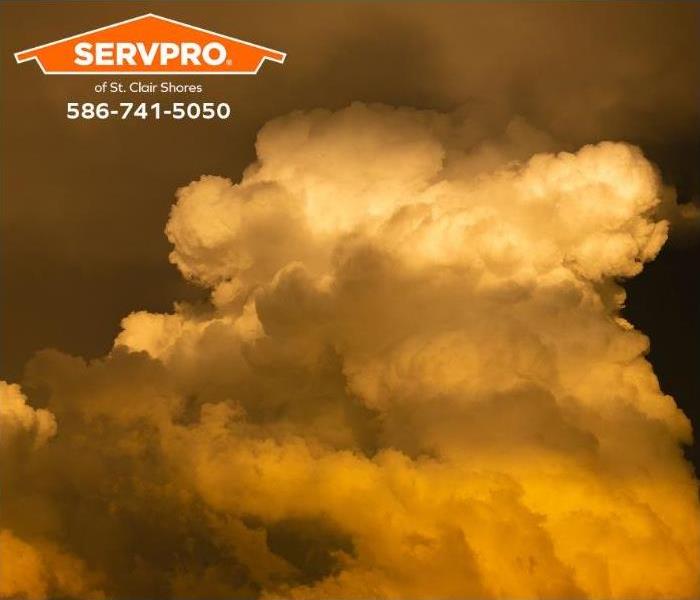 We restore storm damage 24 hours a day in Macomb County.
We restore storm damage 24 hours a day in Macomb County.
Our local team in St. Clair Shores is on call to respond to storm damage emergencies and we typically arrive onsite within four hours of your call. We know that our fast emergency response time saves our customers time and money in many situations. When we arrive, we will mitigate any structural damage by tarping and boarding any areas of the structure exposed to the elements, and we will extract any water and set up powerful air movers and blowers to restore the damage quickly and efficiently.
The Federal Emergency Management Agency offers these tips for preparing for a thunderstorm:
Know Your Risk
Know your area’s risk for thunderstorms. In most places, they can occur year-round and at any hour. Sign up for your community’s warning system. The Emergency Alert System (EAS) and National Oceanic and Atmospheric Administration (NOAA) Weather Radio also provide emergency alerts.
Strengthen Your Home
Cut down or trim trees that may be in danger of falling on your home. Consider buying surge protectors, lightning rods, or a lightning protection system to protect your home, appliances, and electronic devices.
Make an Emergency Plan
Create an emergency plan so that you and your family know what to do, where to go, and what you will need to protect yourselves from the effects of a thunderstorm. Identify sturdy buildings close to where you live, work, study and play.
Call Us Today!
When your St. Clair Shores home or commercial business has storm damage, our local team in St. Clair Shores is Here to Help. ® We’ll restore your property damage “Like it never even happened.” Call us today at 586-741-5050.
Franchises are independently owned and operated.
Tips for Keeping Food Supplies Safe During a Power Outage in St. Clair Shores?
5/30/2023 (Permalink)
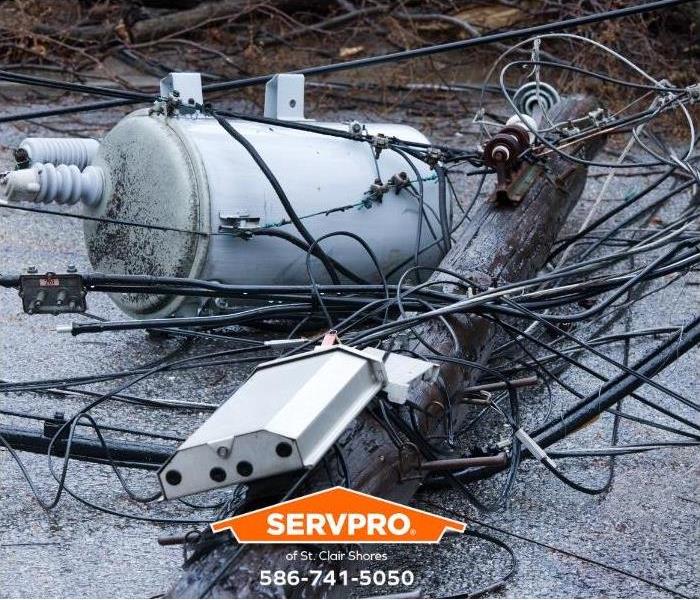 We restore storm damage 24 hours a day in Macomb County.
We restore storm damage 24 hours a day in Macomb County.
Powerful storms can knock down trees and powerlines and cause power outages at any time of the year in St. Clair Shores. Our local in St. Clair Shores team offers these tips from the United States Department of Agriculture for keeping food supplies safe during a power outage:
- Keep refrigerator and freezer doors closed.
- The refrigerator will keep food safe for up to 4 hours. If the power is off longer, you can transfer food to a cooler and fill it with ice or frozen gel packs. Make sure there is enough ice to keep food in the cooler at 40°F or below. Add more ice to the cooler as it begins to melt.
- A full freezer will hold the temperature for approximately 48 hours (24 hours if it is half full)
- Obtain dry ice or block ice if your power is going to be out for a prolonged period. Fifty pounds of dry ice should hold an 18-cubic-foot freezer for 2 days.
- In freezers, food in the front, in the door, or in small, thin packages will defrost faster than large, thick items or food in the back or bottom of the unit
Call Us Today!
When your St. Clair Shores home or commercial business has storm damage, our local team in St. Clair Shores is Here to Help. ® We’ll restore your property damage “Like it never even happened.” Call us today at 586-741-5050.
Franchises are independently owned and operated.
Are You Prepared for the Next Big Storm in St. Clair Shores?
2/7/2023 (Permalink)
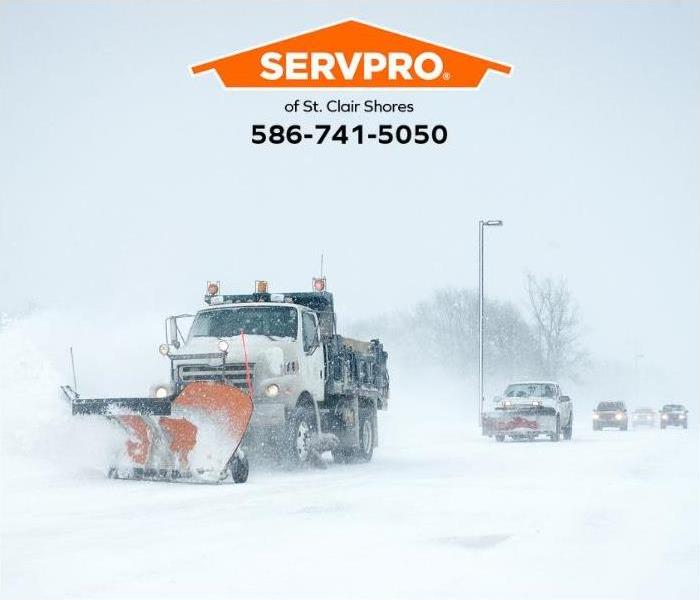 We restore storm damage 24-hours a day in Macomb County.
We restore storm damage 24-hours a day in Macomb County.
Winter is here, and our local team in St. Clair Shores wants everyone to be prepared for the next big winter storm and offers these tips from the Red Cross:
Winter Storm WARNING: Life-threatening, severe weather conditions have begun or will begin within 24 hours.
Blizzard WARNING: Sustained winds or frequent gusts of 35 miles per hour or greater are expected, plus considerable falling or blowing snow reducing visibility to less than a quarter mile, expected to prevail for three hours or longer.
Other winter storm words to listen for:
- WIND CHILL Temperature: How cold people and animals feel when outside. As wind increases, heat is carried away from your body faster, driving down your body temperature and making you feel much colder. The wind chill temperature is not the actual temperature but how wind and cold feel on exposed skin.
- Winter Storm OUTLOOK: Winter storm conditions are possible in the next two to five days. Stay tuned to local media for updates.
- Winter Storm WATCH: Winter storm conditions are possible within the next 36 to 48 hours. Review your winter storm plans and stay informed about weather conditions.
- Winter Weather ADVISORY: Winter weather conditions are expected to cause significant inconveniences and may be hazardous but not life-threatening if you are cautious.
Call Us Today!
When your St. Clair Shores home or commercial business has a storm damage emergency, our local team in St. Clair Shores is Here to Help. ® Call us today at 586-741-5050.
Franchises are independently owned and operated.
What Can I Do to Thaw My Frozen Pipes in Eastpoint?
1/31/2023 (Permalink)
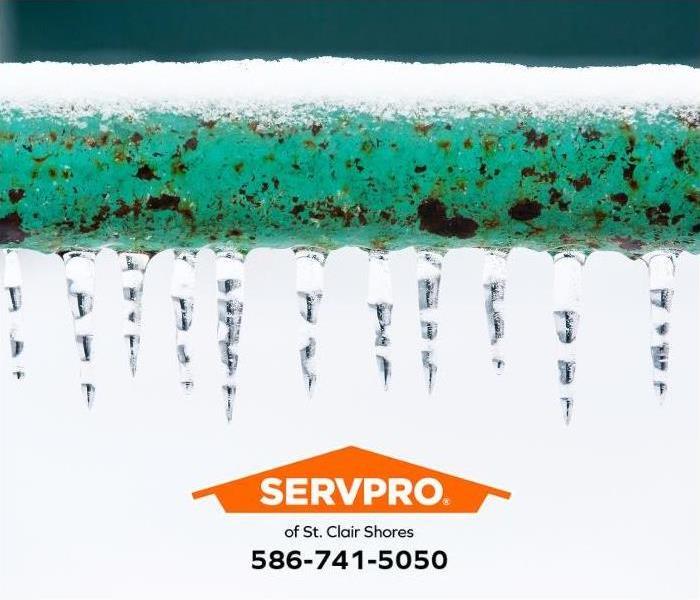 We respond to storm damage emergencies 24-hours a day in Macomb County.
We respond to storm damage emergencies 24-hours a day in Macomb County.
Our team in St. Clair Shores has been restoring storm damage in Eastpointe for many years. Our fast emergency response time is key to minimizing the chances of secondary damage in many cases. If you discover a frozen pipe, the American Red Cross offers these tips for thawing them:
- If you turn on a faucet and only a trickle comes out, suspect a frozen pipe. Likely places for frozen pipes include against exterior walls or where your water service enters your home through the foundation.
- Keep the faucet open. As you treat the frozen pipe and the frozen area begins to melt, water will start to flow through the frozen area. Running water through the pipe will help melt ice in the pipe.
- Apply heat to the section of pipe using an electric heating pad wrapped around the pipe, an electric hair dryer, a portable space heater (kept away from flammable materials), or wrapping pipes with towels soaked in hot water. Do not use a blowtorch, kerosene or propane heater, charcoal stove, or another open flame device.
- Apply heat until full water pressure is restored. If you cannot locate the frozen area, if the frozen area is not accessible, or if you can not thaw the pipe, call a licensed plumber.
- Check all other faucets in your home to find out if you have additional frozen pipes. If one pipe freezes, others may freeze, too.
Call Us Today!
When your home or business in Eastpointe has storm damage, our local team in St. Clair Shores is Here to Help. ® Call us today at 586-741-5050.
Franchises are independently owned and operated.
Is Your Home in Warren Prepared to Face Strong Winds this Winter?
12/6/2022 (Permalink)
 We respond to storm damage emergencies 24-hours a day in Macomb County.
We respond to storm damage emergencies 24-hours a day in Macomb County.
In Warren, winter weather can be brutal, and storms and strong winds can cause property damage. Our local team in St. Clair Shores wants everyone to be prepared for winter storms. Here are some wind-proofing tips from the Federal Emergency Management Agency (FEMA) for steps you can take to ensure your home is protected from damaging winds.
Secure Fencing, Porches, Canopies, and Sheds
Have them inspected and make sure they are firmly attached and in sound structural condition. Secure any parts of fencing that appear weak or loose.
Replace Gravel and Rock Landscaping Materials
Rock and gravel materials can cause serious damage during a severe wind event. During extreme wind events, gravel has been found in mailboxes and has even shredded vinyl siding. Replace these materials with a softer material, such as mulch or dirt.
Anchor Fuel Tanks and External Utility Links
If you have an exterior fuel tank or any of your utilities are located outside, anchor or tie them down according to the ground anchor instructions. This will help reduce the risk of them overturning and sliding.
Call Us Today!
When you have a wind or storm damage emergency in your home or business in Warren, our local team in St. Clair Shores is Here to Help. ® Call us today at 586-741-5050.
Franchises are independently owned and operated.
Winterizing Tips for St. Clair Shores Homes?
10/3/2022 (Permalink)
 We are trusted leaders in storm damage restoration services in Macomb County.
We are trusted leaders in storm damage restoration services in Macomb County.
Winters in St. Clair Shores can be severe and unpredictable. Our local team in St. Clair Shores responds to storm damage emergencies in the winter every year. Here are some tips from the Insurance Institute for Business and Home Safety to help prepare your home for winter.
Upgrade your appliances if they are more than ten years old, and install a programmable thermostat.
Upgrade your windows and doors
Create a plan for your home before and after a winter storm.
If windows or doors show signs of aging or have gaps or other areas of concern, replace them to avoid potential interior or exterior water damage.
Invest in a generator
This can be especially crucial when temperatures are below freezing, leaving your home vulnerable to frozen pipes. Determine if a portable or permanent generator is the right solution.
Prevent ice dams
When replacing your roof:
- Talk to your contractor about adding an ice and vapor moisture barrier
- Consider roof heat cables along the roof's eaves to prevent ice dams. Ensure the heating cables are UL Listed, FM Approved, or Canadian Standard Association (CSA) Certified.
- Enclose?Solid Fuel Burning Appliances in Attics.?Solid fuel-burning appliances?contribute to warm air build-up and should not be placed openly in the attic space.
Replace insulation, making sure it has an R-value. The higher the R-value, the greater the effectiveness of the insulation.
Call Us Today!
When your St. Clair Shores home or commercial business has storm damage, our local team in St. Clair Shores is Here to Help. ® Call us today at 586-741-5050.
Franchises are independently owned and operated.
Winds Causing Structural Damage to Homes in St. Clair Shores?
9/20/2022 (Permalink)
 We restore storm damage 24 hours a day in Macomb County.
We restore storm damage 24 hours a day in Macomb County.
Our local team in St. Clair Shores responds to storm damage emergencies 24-hours a day in Macomb County. We know that our fast response time saves our customers time and money in many cases. Here are some tips for protecting your property from wind damage from the Federal Emergency Management Agency:
Secure Fencing, Porches, Canopies, and Sheds
Have them inspected and make sure they are firmly attached and in sound structural condition. Secure any parts of fencing that appear weak or loose.
Anchor Any Fuel Tanks and External Utility Links
If you have an exterior fuel tank or any utilities located outside, anchor or tie them down according to the ground anchor instructions. This will help reduce the risk of them overturning and sliding.
Secure Objects Outside the Home
Loose shingles, your dog’s house, trash cans, and sports equipment can be picked up by the wind and cause damage to your home—secure outdoor objects like furniture, gutters, and downspouts.
Trim or Remove Dead, Damaged, or Rotting Trees and Limbs
High winds can cause trees and branches to fall. Make sure any damaged trees on the property are trimmed or removed regularly. Your home should be at least a full-grown tree’s height away from the base of any tree, usually about 40 feet away.
Call Us Today!
When your St. Clair Shores home or commercial business has storm damage, our local team in St. Clair Shores is Here to Help. ® Call us today at 586-741-5050.
Franchises are independently owned and operated.
Norse God Thor Causing Thunderstorms in St. Clair Shores?
8/23/2022 (Permalink)
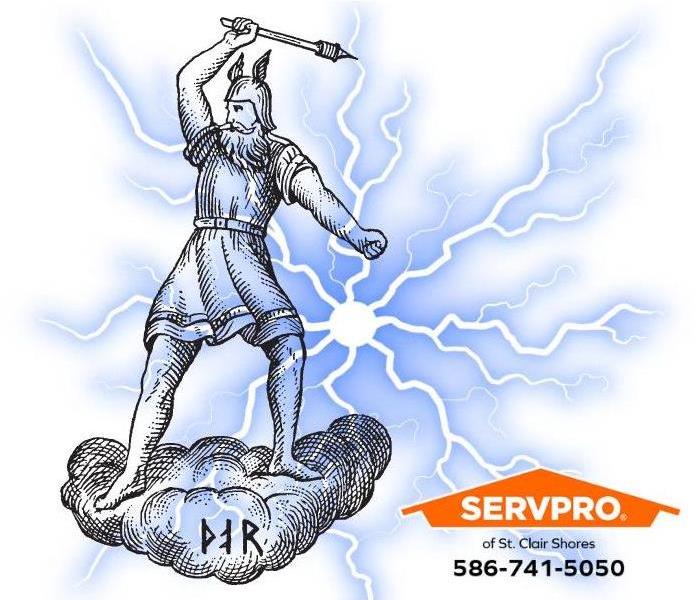 We are leaders in storm damage restoration services in Macomb County.
We are leaders in storm damage restoration services in Macomb County.
Our local team in St. Clair Shores has been restoring storm damage in Macomb County for many years. Many cultures have mythology and stories that explain thunder and lightning, and Thor, the Norse god of thunder, is pretty popular with Walt Disney movie-goers and Marvel comics enthusiasts. Here are some fun facts on Thor from the Farmer’s Almanac:
- Thor is so famous that he even gave his name to a day of the week: Thursday (Thor’s day)
- Thor is the son of Odin, the all-father
- Thor wields a magical hammer, Mjölnir
- When a thunderstorm occurs, Thor is riding his chariot into battle pulled by his two goats: Tanngrisni (“gap-tooth”) and Tanngnost (“tooth grinder’)
- Flashes of lightning mean Thor has thrown Mjölnir at a foe
What really causes thunderstorms?
- Lightning occurs when liquid and ice particles in the clouds collide and rub together, creating a static electrical charge
- Some of those particles become positively charged, while others become negatively charged
- These electrically charged particles are called ions
- Over time, the strength of the charge grows, and these opposite ions become attracted to one another, causing the electrical energy to shoot between them or between them and the ground, expelling the energy buildup
Call Us Today!
When your St. Clair Shores home or commercial business has storm damage, our local team in St. Clair Shores is Here to Help. ® Call us today at 586-741-5050.
Franchises are independently owned and operated.
Pack-Out and Move-Out Services For Storm Damaged Homes in Grosse Pointe Shores?
7/13/2022 (Permalink)
 A truck is in the process of being loaded.
A truck is in the process of being loaded.
Our team in St. Clair Shores offers many convenient services to facilitate the restoration of a home or business in Grosse Pointe Shores. Our pack-out and move-out services are one convenient service that helps our customers when the contents of the house require relocation during the restoration process. By moving household items or business inventories offsite, the restoration process can move forward quickly. Our customers have peace of mind knowing their items are stored and protected from secondary damage.
Pack-Outs/ Move-Outs
When your home requires extensive restoration or cleaning due to fire damage, we can conduct an organized, efficient move-out of the affected area. Move-out will provide several benefits, including:
- A quicker remodeling process
- Protecting items from potential damage
- Protecting contents from further on-site damage
Once the restoration is complete, we will work with you to coordinate the move-in according to your needs. The services offered upon move-in may depend on your insurance coverage.
Call Us Today!
You never know when a severe storm will cause damage and require the temporary relocation of your belongings. When your Grosse Pointe Shores home or commercial business has extensive storm damage, we can help you move and store your household contents until the restoration is complete. Call us today at 586-741-5050.
Franchises are independently owned and operated.
Tornado Warning For Grosse Pointe Shores?
6/21/2022 (Permalink)
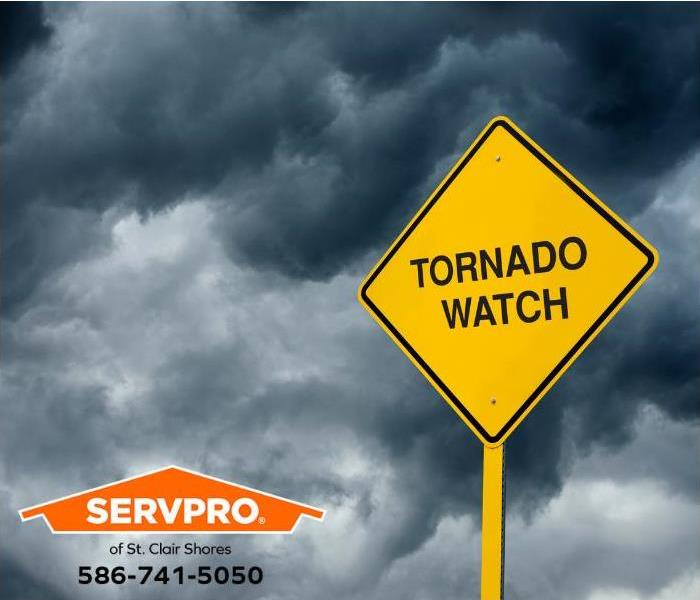 We respond to storm damage emergencies 24-hours a day in Macomb County.
We respond to storm damage emergencies 24-hours a day in Macomb County.
Our local team in St. Clair Shores responds to storm damage emergencies every year in Grosse Pointe Shores. Here are some definitions for tornado alerts and high wind warnings from the National Weather Service:
Tornado Watch: this means a tornado is possible.
Tornado Warning: this means a tornado is already occurring or will occur soon. Go to your safe place immediately.
High Wind Watch: Be Prepared! Sustained, strong winds are possible. Secure loose items and adjust plans as necessary so you’re not caught outside.
Wind Advisory: Take Action: Strong winds are occurring but are not so strong as to warrant a High Wind Warning. Objects that are outdoors should be secured, and caution should be taken if driving.
Severe Thunderstorm Warning: Take Action! A thunderstorm is happening or is imminent in the warning area. Severe thunderstorms have wind gusts of 58 miles per hour and hail one inch or larger. Seek shelter inside a sturdy building.
Preparing for High Winds
- Remove any dead trees or overhanging branches near structures
- Remove loose objects outdoors, on patios, roofs, or balconies that could blow away
- Shutter windows securely and brace outside doors
- Bring in unsecured objects from outside and secure objects that could blow away and cause damage or injury
Call Us!
When your Grosse Pointe Shores home or business has storm damage, our local team in St. Clair Shores will restore your property damage “Like it never even happened.” Call us today at 586-741-5050.
Franchises are independently owned and operated.
High Wind Advisory for St. Clair Shores?
5/9/2022 (Permalink)
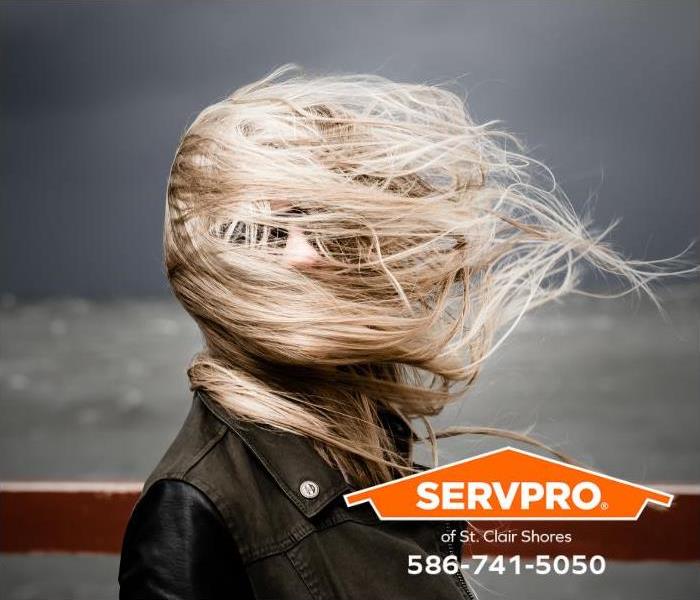 We are trusted leaders in storm damage restoration services in Macomb County.
We are trusted leaders in storm damage restoration services in Macomb County.
Our local team in St. Clair Shores has years of experience restoring storm damage in St. Clair Shores. High winds can turn tree limbs and patio furniture into flying projectiles. To prepare for high winds:
- Remove any dead trees or overhanging branches near structures
- Remove loose objects outdoors, on patios, roofs, or balconies that could blow away
- Shutter windows securely and brace outside doors
- Bring in unsecured objects from outside and secure things that could blow away and cause damage or injury
Here are the definitions for winds and wind alerts from the National Oceanic and Atmospheric Administration:
High Wind Warning: Take Action! Sustained, strong winds with even stronger gusts are happening. Seek shelter. If you are driving, keep both hands on the wheel.
High Wind Watch: Be Prepared! Sustained, strong winds are possible. Secure loose items and adjust plans as necessary so you’re not caught outside.
Wind Advisory: Take Action: Strong winds are occurring but are not so strong as to warrant a High Wind Warning. Objects that are outdoors should be secured, and caution should be taken if driving.
Severe Thunderstorm Warning: Take Action! A thunderstorm is happening or is imminent in the warning area. Severe thunderstorms have wind gusts of 58 miles per hour and or hail one inch or larger. Seek shelter inside a sturdy building.
Call Us!
When your St. Clair Shores home or business needs storm damage restoration services, our team in St. Clair Shores is Here to Help. ® Call us today at 586-741-5050.
Franchises are independently owned and operated.
Storm Damage in St. Clair Shores?
3/8/2022 (Permalink)
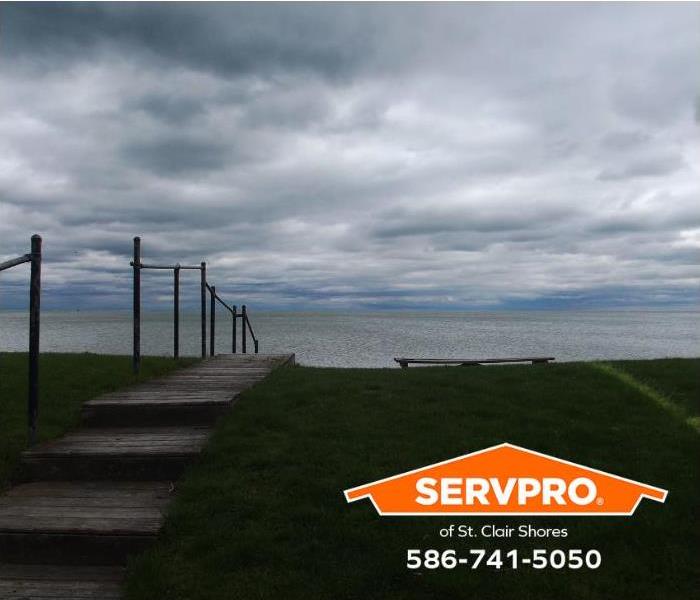 We respond to storm damage emergencies 24-hours a day in Macomb County.
We respond to storm damage emergencies 24-hours a day in Macomb County.
Do you know that March is the fourth coldest month of the year in St. Clair Shores? Storms can blow in at any time and cause property damage, and when this happens, you can count on the professionals at SERVPRO® of St. Clair Shores to restore the damage quickly and efficiently.
When a storm damages your home or business, we will secure the structure by tarping and boarding up any areas exposed to the elements to prevent secondary damage. After protecting your structure, we can begin the restoration process. This may involve reconstruction services to return your property to pre-damage condition.
- Board Up
- Carpet Repair and Installation
- Document Drying
- Dry Cleaning
- Drywall Installation
- Drywall Removal
- Electrical
- Electronics Restoration
- Fine Art Restoration
- Furniture Restoration
- General Contracting
- Hardwood Floor Repair
- HVAC Services
- Linoleum Floor Repair
- Marble Floor Repair
- Move Out
- Painting
- Plumbing
- Portable Power
- Roof Tarp
- Roofing Services
- Scalable Resources
- Temporary Fencing
- Temporary Warehouse Space
- Tile Floor Repair
- Tree Removal
General Contractor License #: 2101202847
Residential Contractor License #: 2101202847
Commercial Contractor License #: 2101202847
Call Us Today!
When your St. Clair home or business has storm damage, SERVPRO® of St. Clair Shores is Here to Help. ® Our technicians will clean and restore your storm damage, “Like it never even happened.” Call us today at 586-741-5050.
Franchises are independently owned and operated.
Ice Dam Prevention Tips for Warren?
2/8/2022 (Permalink)
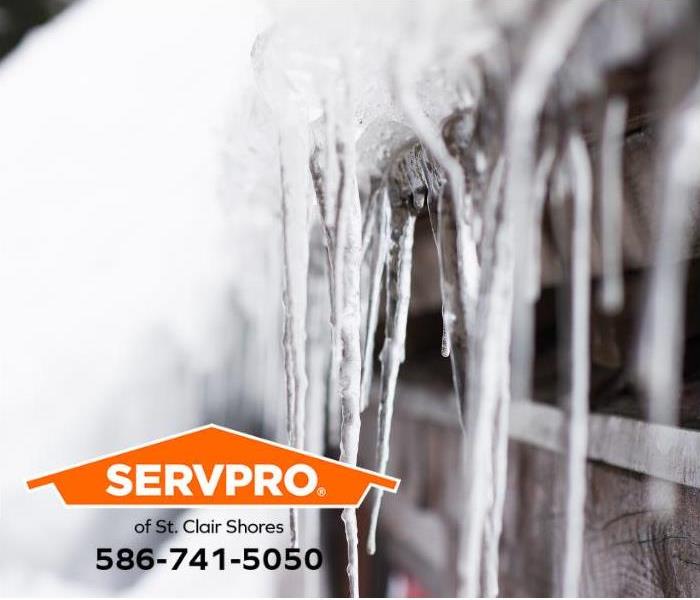 We restore storm damage 24-hours a day in Macomb County.
We restore storm damage 24-hours a day in Macomb County.
SERVPRO® of St. Clair Shores has been restoring water damage for Warren residents and commercial businesses for many years. The State of Michigan’s website offers this helpful information on preventing ice dams:
Preventing roof ice dams
There’s no way to guarantee an ice dam will not damage your home, but you can reduce the likelihood of an ice dam forming in the first place:
- Thoroughly clean all leaves, sticks, and other debris from rain gutters and downspouts
- Strive to keep snow on your roof to a minimum. Long-handled devices called “roof rakes” let you stand on the ground and pull the snow off the roof. Keeping heavy snow loads off your roof reduces the chances of ice dam formation and roof failure due to the weight.
- Keep gutters and downspouts clear of snow and icicles all winter
- Evaluate the insulation and ventilation in your attic. Attic insulation should have an R-value of at least R-30 (R-38 is preferable in northern climates). In addition, good airflow from under the eaves or soffit area along the underside of the roof and out through the roof vents is essential.
Call Us Today!
When your Warren home or commercial business has storm damage, SERVPRO® of St. Clair Shores technicians will restore your damage, “Like it never even happened.” Call us today at 586-741-5050.
Franchises are independently owned and operated.
Storm Safety Tips for Animals in Warren?
1/19/2022 (Permalink)
 We are trusted leaders in storm damage restoration in Macomb County.
We are trusted leaders in storm damage restoration in Macomb County.
SERVPRO® of St. Clair Shores has been restoring storm damage in Warren for many years. Our fast emergency response time saves our customers time and money in many cases. The winter months bring heavy snow, and last month, a couple of weeks before Christmas, a storm near Bomb Cyclone proportions fell over the state. Here are some tips for protecting our animals during a winter storm from the American Red Cross:
- Bring your companion animals indoors
- Create a place where your other animals can be comfortable in severe winter weather. Horses and livestock should have a shelter where they can be protected from wind, snow, ice, and rain. Grazing animals should have access to a protected supply of food and non-frozen water.
- Be aware of the potential for flooding when snow and ice melt, and be sure that your animals have access to high ground that is not impeded by fencing or other barriers. You may not be able to get to them in time to relocate them in the event of flooding.
- Install snow fences in rural areas to reduce drifting snow on roads and paths, which could block access to homes, barns, and animals’ feed and water
Call Us Today!
When your Warren home or business has storm damage, SERVPRO® of St. Clair Shores’s technicians have a team of technicians on-call and ready to respond to your call. Call us today at 586-741-5050.
Franchises are independently owned and operated.
Storm Preparedness in Warren?
12/14/2021 (Permalink)
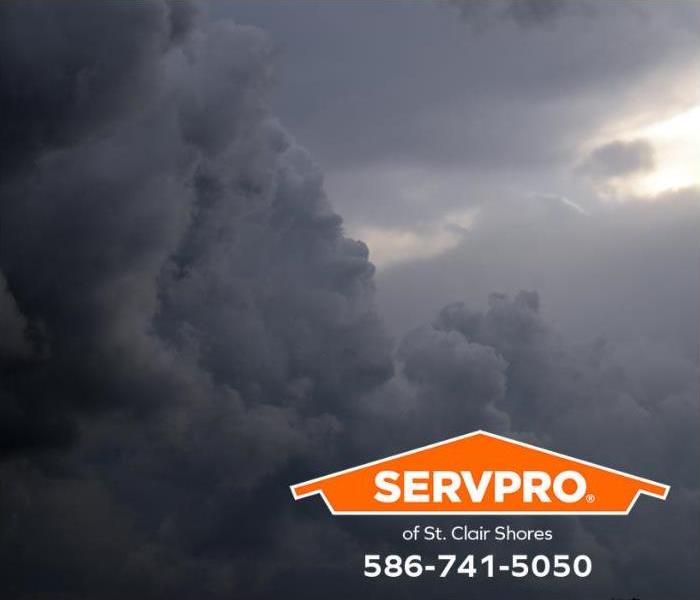 We restore storm damage in Macomb County 24-hours a day!
We restore storm damage in Macomb County 24-hours a day!
SERVPRO® of St. Clair Shores has been restoring storm damage in warren for many years. Severe weather is no stranger to our part of the country and knowing how to stay safe during winter weather is important for our welfare. Here are some tips for staying safe this winter from the Federal Emergency Management Agency (FEMA):
- Avoid carbon monoxide poisoning. Never heat your home with a gas stovetop or oven. Only use generators and grills outdoors and away from windows.
- Stay off roads if at all possible. If trapped in your car, then stay inside.
- Limit your time outside. If you need to go outside, then wear layers of warm clothing. Watch for signs of frostbite and hypothermia.
- Reduce the risk of a heart attack by avoiding overexertion when shoveling snow and walking in the snow.
Coronavirus Updates
Sign up for email updates about coronavirus from the Centers for Disease Control and Prevention (CDC). Learn the symptoms of COVID-19 and follow CDC guidelines. If you can, set aside items like soap, hand sanitizer that contains at least 60 percent alcohol, disinfecting wipes, and general household cleaning supplies that you can use to disinfect surfaces you touch regularly
Call Us Today!
When your Warren home or commercial business needs storm damage restoration services, SERVPRO® of St. Clair Shores has a team of technicians trained and certified to clean and restore your storm damage, “Like it never even happened.” Call us today at 586-741-5050.
Franchises are independently owned and operated.
Storm Damage Prevention Tips for St. Clair Shores?
11/15/2021 (Permalink)
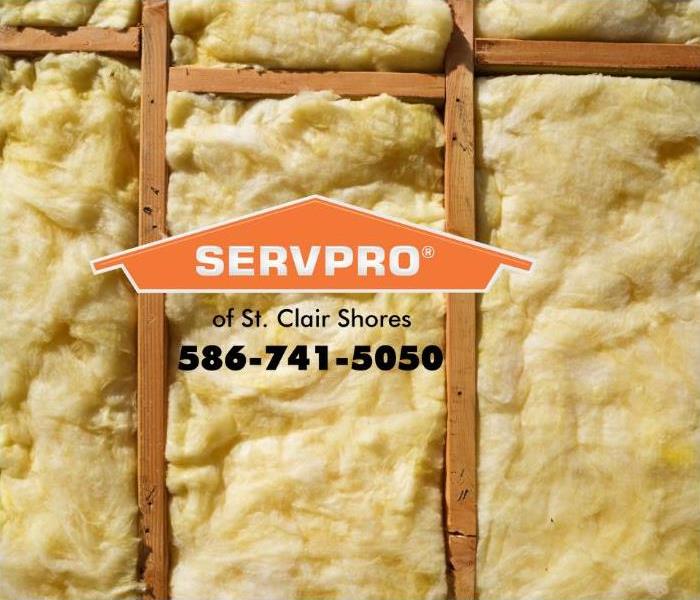 We restore storm damage 24-hours a day in Macomb County.
We restore storm damage 24-hours a day in Macomb County.
Do you know that an eighth-inch crack in a pipe can be enough to leak up to 250 gallons of water a day? SERVPRO® of St. Clair Shores responds to storm damage emergencies throughout the winter months, and many of these emergencies involve frozen pipes. The State of Michigan has a great website where you can find helpful information for preventing pipes from freezing.
Before winter hits:
- Insulate pipes in crawl spaces and attics
- Heat tape or thermostatically-controlled heat cables can be used to wrap pipes
- Use only products approved by an independent testing organization, such as Underwriters Laboratories, and only for the use intended
- Seal leaks that allow cold air inside, especially near pipes
- Look for air leaks around electrical wiring, dryer vents, and pipes
- Use caulk or insulation to keep cold air out and the heat in. A tiny opening can let enough cold air inside to cause a pipe to freeze with a severe enough wind chill.
- Disconnect garden hoses and, if practical, use an indoor valve to shut off and drain water from pipes leading to outside faucets. This reduces the chance of freezing in the short span of the pipe just inside the house.
Call Us Today!
When your St. Clair Shores home or commercial business has storm damage, SERVPRO® of St. Clair Shores has a team of technicians trained and certified to restore the storm damage, “Like it never even happened.” Call us today at 586-741-5050.
Franchises are Independently Owned and Operated.
Severe Wind Damage in Warren?
9/13/2021 (Permalink)
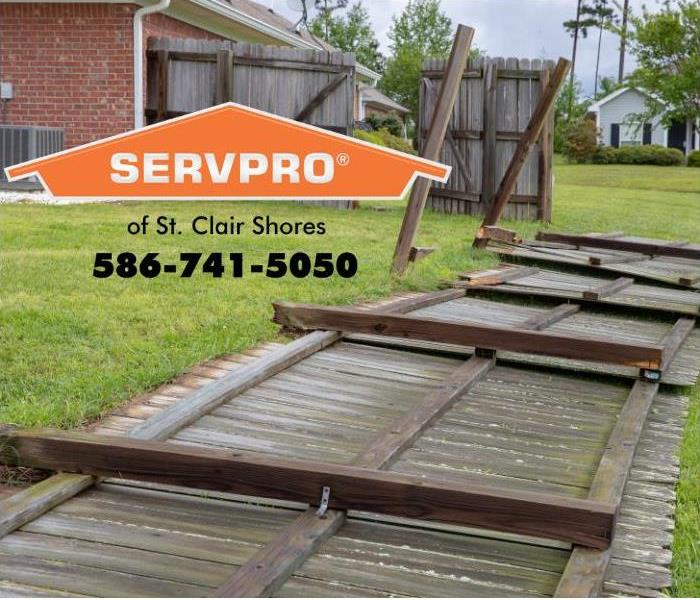 We mitigate storm damage 24-hours a day in Macomb County.
We mitigate storm damage 24-hours a day in Macomb County.
Recently severe winds tore through Macomb county, and many in the area were without power. SERVPRO® of St. Clair Shores responds to storm damage emergencies throughout the year in Warren, and offer these tips for protecting yourself during a power outage:
- Keep freezers and refrigerators closed
- Only use generators outdoors and away from windows
- Do not use a gas stove to heat your home
- Disconnect appliances and electronics to avoid damage from electrical surges
- Use alternate plans for refrigerating medicines or power-dependent medical devices
- If safe, go to an alternate location for heat or cooling
- Check on neighbors
If your home or business is damaged by wind or other severe weather, our storm damage response team has the equipment, training, and experience to secure your property and board up any areas of the structure exposed to the elements. We provide a full range of building and reconstruction services when needed to restore a property to pre-damage condition.
Call Us!
When your Warren home or commercial business needs emergency storm damage restoration services, SERVPRO® of St. Clair Shores has a team of highly trained technicians on-call and ready to respond 24-hours a day. Call us today at 586-741-5050. We’ll restore your storm damage, “Like it never even happened.”
Franchises are Independently Owned and Operated.
Storm Water Intrusion in Warren?
8/18/2021 (Permalink)
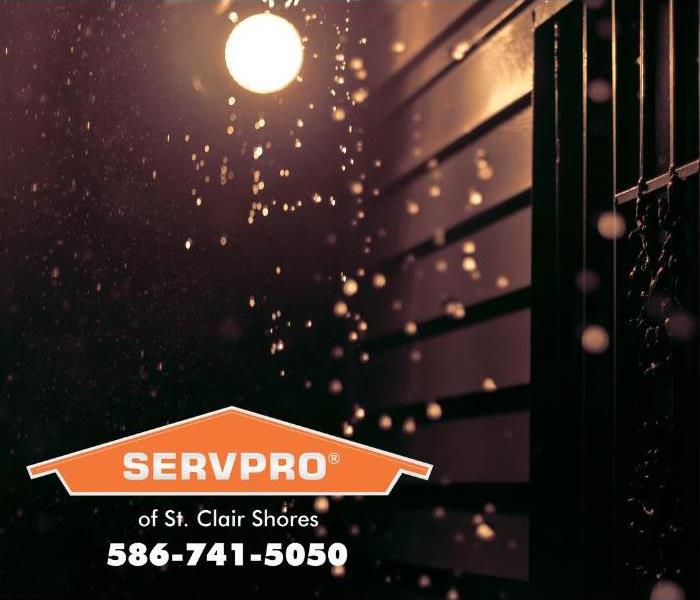 We are trusted leaders in storm damage restoration in Macomb County.
We are trusted leaders in storm damage restoration in Macomb County.
SERVPRO® of St. Clair Shores responds to storm damage emergencies in Warren 24-hours a day. Franchise owners Jenny and Josh Dishman have over forty-one years of restoration and construction experience combined, and they are both passionate about helping people restore their homes and businesses after experiencing storm damage.
The Dishman’s invest heavily in training and certifications for their employees. They also invest in state-of-the-art equipment. Their technicians have the advanced training, equipment, and experience to efficiently clean and restore any size storm damage you are facing.
Certifications
- AMRT - Applied Microbial Remediation Technician
- ASD - Applied Structural Drying Technician
- CCT - Carpet Cleaning Technician
- CDS - Commercial Drying Specialist
- ECTP - Employee Certification Training Program
- FSRT - Fire & Smoke Damage Restoration Technician
- OCT - Odor Control Technician
- OSHA - 10-hour General and/or Construction Industry Training Program
- OSHA - 30-hour General and/or Construction Industry Training Program
- OSHA - Other Training
- RRRP - Lead-Based Paint Activities and Renovation
- WRT - Water Damage Restoration Technician
When there is water damage, they will monitor and document the drying process to ensure the damaged area is returned to normal moisture levels.
Call Us!
When your home or commercial business needs storm restoration services, SERVPRO® of St. Clair Shores has a team of highly trained technicians on-call and ready to respond 24-hours a day. Call us today at 586-741-5050. We’ll restore your storm damage in Warren, “Like it never even happened.”
Franchises are Independently Owned and Operated.
Lightning Safety Information for Grosse Pointe Shores?
7/12/2021 (Permalink)
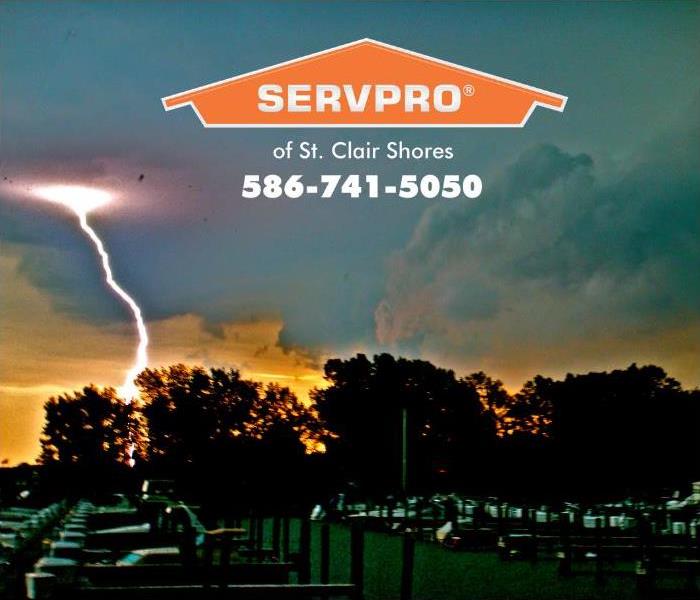 We restore storm damage in Macomb County.
We restore storm damage in Macomb County.
Storm Damage Happens
Do you know what to do when a thunderstorm threatens? Storms and severe weather can happen at any time of the year in Macomb county, and SERVPRO® of St. Clair Shores responds to storm damage emergencies 24-hours a day in Grosse Pointe Shores. When we arrive, we will immediately tarp up and board up any areas of the structure that are exposed to the elements to minimize further exposure. We will also conduct an inspection and provide an assessment of the damage. Here are some interesting facts about thunderstorms and lightning safety from the National Oceanic and Atmospheric Administration (NOAA):
Thunderstorms
- Affect relatively small areas when compared with most other storms
- The typical thunderstorm is 15 miles in diameter and lasts for 30 minutes
- All thunderstorms are dangerous
- Severe thunderstorms produce large hail or winds of at least 58 miles-per-hour
- Some wind gusts can exceed 100 miles per hour and produce tornado-like damage
- Many communities will sound their outdoor sirens for very damaging straight-line winds
- When a severe thunderstorm threatens, stay inside a strong structure
- Mobile home occupants should go to a more permanent structure
Call Us Today!
When your home or commercial business needs storm restoration services, SERVPRO® of St. Clair Shores has a team of highly trained technicians on-call and ready to respond 24-hours a day. Call us today at 586-741-5050. We’ll restore your storm damage in Grosse Pointe Shores, “Like it never even happened.”
Franchises are Independently Owned and Operated.
Flooding in The Villages of Grosse Pointe Shores?
6/14/2021 (Permalink)
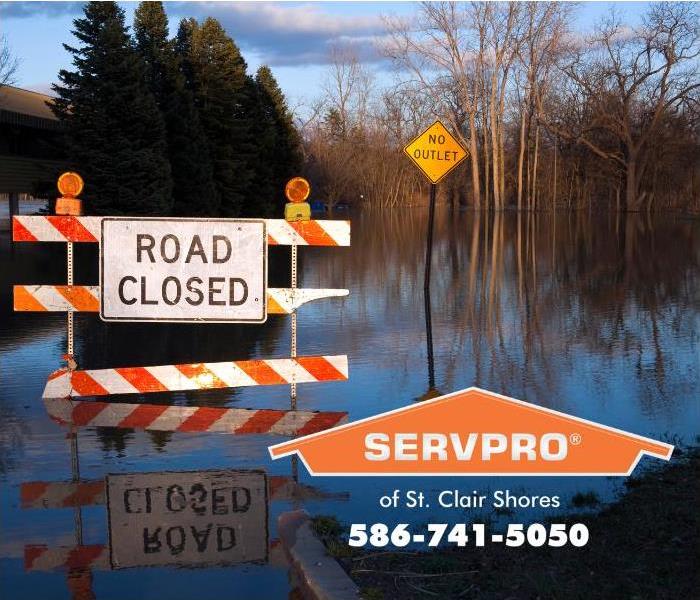 We respond to storm damage emergencies 24-hours a day in Wayne County.
We respond to storm damage emergencies 24-hours a day in Wayne County.
SERVPRO® of St. Clair Shores has been helping the residents of the Villages of Grosse Point Shores mitigate and restore flood damage for many years. Here is some helpful information from the Federal Emergency Management Agency (FEMA) on staying safe during a flood:
- Evacuate immediately, if told to evacuate
- Never drive around barricades
- Contact your health provider if you are sick and need medical attention, and wait for further care instructions and shelter in place, if possible
- Listen to the emergency warning system (EAS), National Oceanic and Atmospheric Administration (NOAA) Weather Radio, or local alerting systems for current emergency information and instructions regarding flooding
- Do not walk, swim or drive through floodwaters
- Stay off bridges over fast-moving water
- Fast-moving water can wash bridges away without warning
- Stay inside your car if it is trapped in rapidly moving water, and get on the roof if water is rising inside the car
- Get to the highest level if trapped in a building
- Do not climb into a closed attic to avoid getting trapped by rising floodwater
Call Us Today!
When you need storm damage restoration services, SERVPRO® of St. Clair Shores has a team of highly trained technicians on-call and ready to respond 24-hours a day. Call us today at 586-741-5050. We’ll restore your storm damage in The Villages of Grosses Point Shores, “Like it never even happened.”
SERVPRO® of St. Clair Shores is Independently Owned and Operated.
Rainy Day Damage in St. Clair Shores?
5/11/2021 (Permalink)
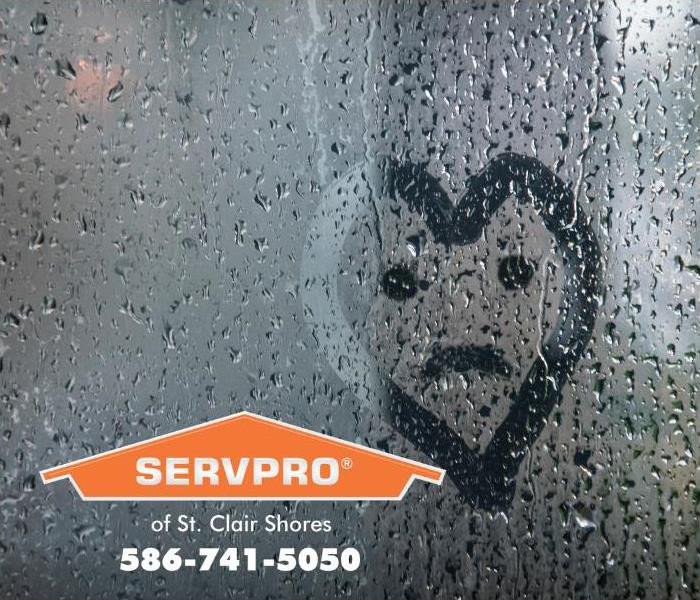 SERVPRO of St. Clair Shores is a trusted leader in storm damage restoration.
SERVPRO of St. Clair Shores is a trusted leader in storm damage restoration.
Downpour disaster in St. Clair Shores.
It was a rainy day in St. Clair Shores. The kids were playing, and I was puttering around doing chores in the kitchen when I heard giggling and water splashing in the playroom. When I went to investigate, I discovered rain pouring in through a broken windowpane. A downed tree in my neighbor’s backyard had fallen, and a branch had broken the window.
Oh no! I called SERVPRO® of St. Clair Shores and they came out and immediately boarded up the broken window to prevent further water intrusion into the house. They pulled the tree away from the house and contacted my insurance adjuster.
I was amazed by how quickly and efficiently the SERVPRO team worked. They extracted the water from the floor and set up air dryers and blowers to remove the excess water from the air. They documented the drying process and helped me with the insurance paperwork and process. By the time they repaired the window, you would never know there had been any storm damage.
Call Us Today!
When your St. Clair Shores home or business needs emergency storm damage services, SERVPRO® of St. Clair Shores has a team of highly trained technicians on call and ready to respond 24-hours a day. Call us today at 586-741-5050. We’ll restore your storm damage, “Like it never even happened.”
SERVPRO® of St. Clair Shores is Independently Owned and Operated.
Frozen Pipe in Grosse Pointe Shores?
3/15/2021 (Permalink)
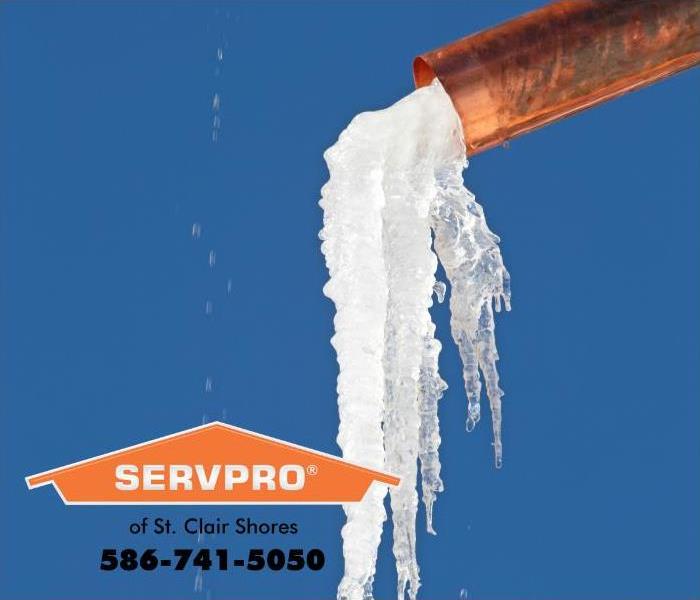 We mitigate storm damage in the St. Clair area 24-hours a day.
We mitigate storm damage in the St. Clair area 24-hours a day.
Frozen Pipes Happen
SERVPRO® of St. Clair Shores responds to storm damage emergencies 24-hours a day in Grosse Pointe Shores. Frozen pipes are a common problem in the winter months, so here are some great tips from The American Red Cross on how to thaw frozen pipes:
- Keep the faucet open. As you treat the frozen pipe and the frozen area begins to melt, water will begin to flow through the frozen area. Running water through the pipe will help melt ice in the pipe.
- Apply heat to the section of the pipe using an electric heating pad wrapped around the pipe, an electric hairdryer, a portable space heater (kept away from flammable materials), or by wrapping pipes with towels soaked in hot water. Do not use a blowtorch, kerosene or propane heater, charcoal stove, or another open flame device.
- Apply heat until the full water pressure is restored. If you are unable to locate the frozen area, if the frozen area is not accessible, or if you cannot thaw the pipe, call a licensed plumber.
- Check all other faucets in your home to find out if you have additional frozen pipes. If one pipe freezes, others may freeze, too.
Call Us!
SERVPRO® of St. Clair Shores has a team of restoration technicians on-call and ready to respond to your storm damage emergency 24-hours a day. Call us today at 586-741-5050. We’ll restore your storm damage in Grosse Pointe Shores, “Like it never even happened.”
SERVPRO® of St. Clair Shores is Independently Owned and Operated.
Power Outage Preparedness for Eastpointe?
2/10/2021 (Permalink)
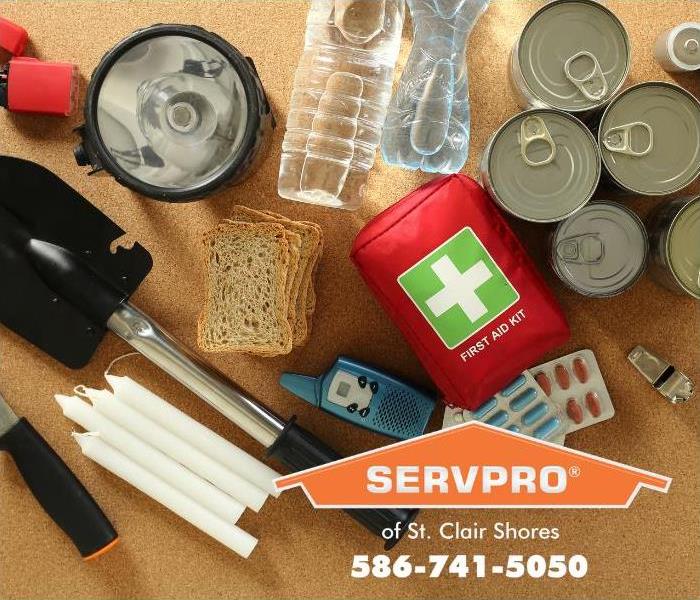 We respond to storm damage emergencies 24-hours a day in the St. Clair Shores area.
We respond to storm damage emergencies 24-hours a day in the St. Clair Shores area.
Eastpointe, are you prepared?
Power outages can occur any at time of the year, but they can be especially dangerous during the winter months. SERVPRO® of St. Clair Shores responds to storm damage emergencies 24 hours a day in the Eastpointe area and offer these power outage safety tips from the American Red Cross to help you prepare in advance for a power outage:
- Assemble an emergency preparedness kit.
- Ensure that each family member knows how to get back in touch if you are separated during an emergency.
- Download the Emergency App for iPhone >> or for Android >>
- Create a support network to identify people who can help you stay home or evacuate. Keep a paper copy of your contact list and other important phone numbers.
- Stay connected and alert by signing up for alert systems and apps for text alerts.
- Keep a battery-operated or hand-crank radio, and a non-cordless home phone, and charges and batteries for cell phones and computers.
- Stock up on food and water, and store enough food and water supplies to last at least two weeks.
- Plan for personal and medical electrical needs.
- Plan for heating your home.
- Have an evacuation plan that includes your pets, and at least a half-full tank of gas in the car.
Call Us Today!
When your Eastpointe home suffers storm damage, call SERVPRO® of St. Clair Shores at 586-741-5050. We’ll clean and restore your property damage, “Like it never even happened.”
SERVPRO® of St. Clair Shores is Independently Owned and Operated.
Storm-Proof Garage Door in St. Clair Shores?
1/11/2021 (Permalink)
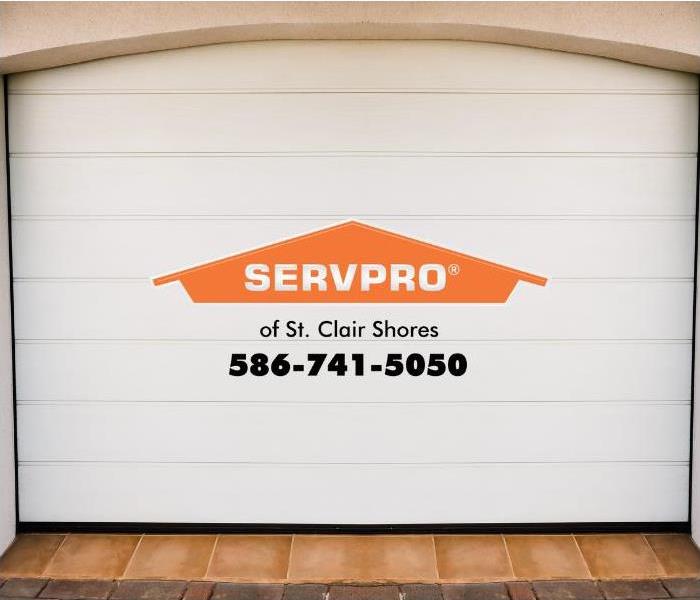 Our storm restoration technicians are on call 24 hours a day in Roseville.
Our storm restoration technicians are on call 24 hours a day in Roseville.
Tips for Preventing Wind Damage
Michigan residents know a thing or two about severe weather, and sometimes there is little advanced warning of a severe weather event. One part of the home that can be damaged in a severe storm is the garage door. When high-wind hammers the garage door it can cause it to buckle and become damaged. SERVPRO® of St. Clair Shores responds to storm damage emergencies 24 hours a day in the Roseville area, and our team of highly trained technicians will work quickly and efficiently to mitigate the damage.
Here are some tips from the Federal Emergency Management Agency to protect your home from wind damage:
- Inspect your garage door to make sure it can withstand strong winds and have reinforcing supports installed if necessary.
- Cover doors and windows to prevent broken glass and damage from flying debris. Consider installing storm windows.
- Inspect your roof and make sure that at least six nails or staples hold down each shingle beneath the edges of the overlapping shingles. Install a waterproof underlayment under the shingles to prevent water from entering the structure in the event the wind blows the shingles off the roof.
- Remove trees too close to the home.
- Anchor potential projectiles like furniture, grills, and small objects.
Call Us Today!
When you need help with storm damage, call SERVPRO® of St. Clair Shores at 586-741-5050. We’ll clean and restore your property damage in Roseville, “Like it never even happened.”
SERVPRO® of St. Clair Shores is Independently Owned and Operated.
Winter Weather Watches and Warnings in Warren?
12/14/2020 (Permalink)
 St. Clair Shores is Here To Help.
St. Clair Shores is Here To Help.
Winter weather is here
According to the Old Farmer’s Almanac for 2020-2021, St. Clair Shores is predicted to see a mixture of weather conditions from cold and lake snows at the beginning of December to snow and then snow flurries during the middle of the month, with temperatures of 31.5 degrees and precipitation of 4 inches during the last week of December! SERVPRO® of St. Clair Shores knows about severe weather and has helped may families and businesses in the Warren area mitigate storm damage over the years.
Being prepared for inclement weather and knowing the difference between Advisories, Watches, and Warnings can help you stay safe this winter. Here are the definitions of the winter various warnings from the Federal Emergency Management Agency (FEMA):
Advisory: issued when snow, blowing ice, ice, sleet, or a combination are expected. Use extra caution while driving and look out for possible travel difficulties.
Watch: issued when conditions are favorable for a winter storm event including heavy sleet, snow, ice storms, blowing snow, or a combination.
Warning: issued for a significant winter weather event including snow, ice, sleet, blowing snow, or a combination. Delay travel until conditions improve.
Call Us Today!
SERVPRO® of St. Clair Shores has a team of highly trained technicians on call 24 hours a day, Call us today at 586-741-5050. We’ll restore your storm damage in Warren, “Like it never even happened.”
SERVPRO® of St. Clair Shores is Independently Owned and Operated.
Flooding in Grosse Point Shores?
11/9/2020 (Permalink)
 We restore storm damage of all kinds in St. Clair Shores.
We restore storm damage of all kinds in St. Clair Shores.
Flood preparation
Flooding causes extensive property damage. Water will rapidly absorb into a structure, and the longer water is allowed to stand, the higher the cost of repairs. Fortunately, SERVPRO® of St. Clair Shores has a team of highly trained technicians on call 24 hours a day to respond to storm damage emergencies standing by to assist the residents of Grosse Point Shores day or night.
Here are some tips from the National Fire Protection Association (NFPA), on things you can do before a flood:
- Check to see if you have flood insurance coverage.
- Raise your furnace, water heater, or electrical panel if they are in areas of your home that may be floode
- Install “check valves” in sewer trap
- Construct barriers, such as levees, berms, or flood walls, to stop floodwater from entering the building.
- Seal walls in basements with waterproofing
- During a flood watch, furniture; move valuables to high points in your home; and unplug electrical appliances and move them to high point
- During a flood or flash flood warning, evacuate if you are advised to do so.
- During a flash flood warning, immediately seek higher ground.
- Keep your emergency supplies kit, including water, stored in an easily accessible, waterproof place.
Call Us
When you have a flood or other storm damage emergency, SERVPRO® of St. Clair Shores is Here to Help.® Call us today at 586-741-5050. We will clean and restore your storm damage in Grosse Point Shores “Like it never even happened.”
SERVPRO® of St. Clair Shores is Independently Owned and Operated.
Severe Storm Damage in St. Clair Shores?
10/19/2020 (Permalink)
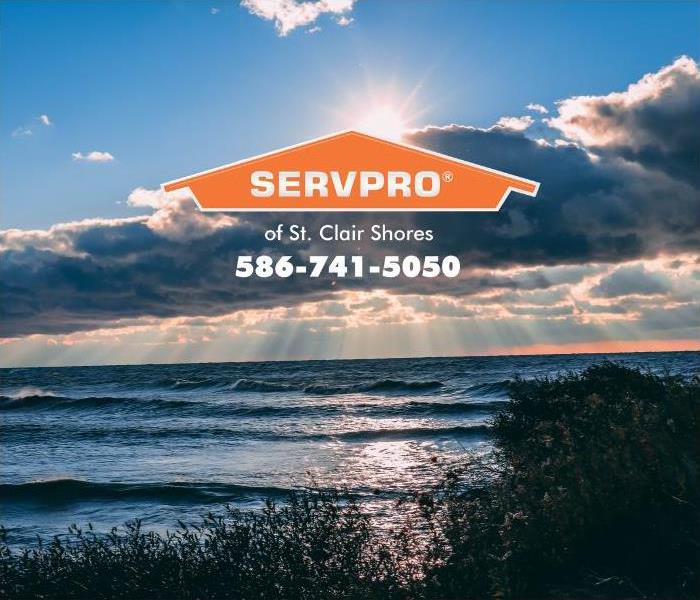 Storm damage restorations are our specialty in Grosse Pointe Shores!
Storm damage restorations are our specialty in Grosse Pointe Shores!
Storms are Common Over Lake St. Clair
You would never know by looking at this picture that there was a massive storm over Lake St. Clair two hours ago. When storms blow in, they increase the opportunity for water damage to occur. Gusty winds can blow off roof shingles causing roof damage. Rain can seep into leaking window and door seals, and leaf-clogged rain gutters and blocked downspouts have been known to cause water intrusion into basements and anywhere water can penetrate into the structure. SERVPRO® of St. Clair Shores has a team of storm and water damage restoration specialists on call 24 hours a day to respond to any size storm damage emergency you have. Grosse Point Shores residents know they can count on us to arrive quickly to immediately tarp, board-up, and secure the damaged areas of the structure. We will provide an assessment of the damage and extract the water and thoroughly dry the area restoring your property to pre-damage condition!
Call Us Today
When you have a storm damage emergency of any size, SERVPRO® of St. Clair Shores is Here to Help.® Call us today at 586-741-5050. We will clean and restore your storm damage in Grosse Pointe Shores, “Like it never even happened.”
SERVPRO® of St. Clair Shores is Independently Owned and Operated.
Lake Flooding in Grosse Point Shores?
10/5/2020 (Permalink)
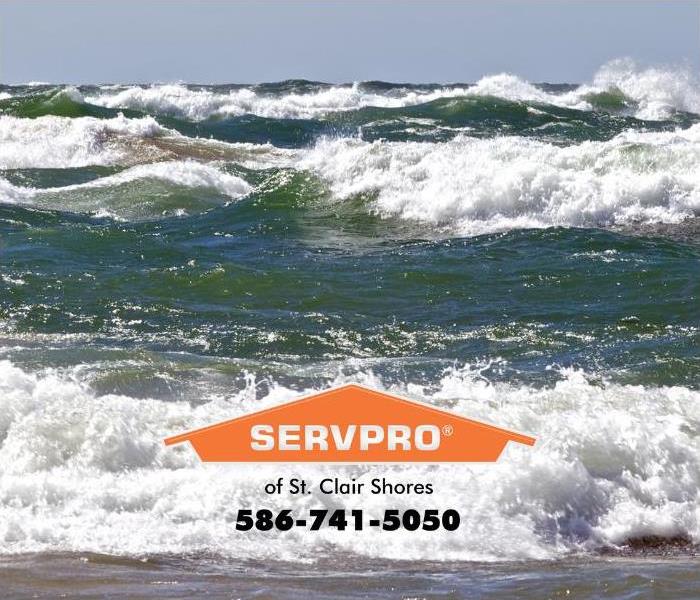 We have been mitigating storm damage in St. Clair Shores for years!
We have been mitigating storm damage in St. Clair Shores for years!
Lake Levels Are Rising
According to the United States Army Corps of Engineers, Great Lakes water levels are going to continue to rise to heights similar to the lake level records set in 2019. The City of St. Clair Shores is urging Grosse Point Shores residents to take proactive measures to prevent basement and road flooding.
For property owners living next to the lake who will have some wave action, the Army Corps of Engineers recommends that you build a berm or seawall that is thirty-six inches above the current lake level. The City also suggests that residents construct adequate sandbag barriers around their property before high water occurs. SERVPRO® of St. Clair Shores has been responding to storm damage emergencies in the St. Clair Shores area for years and has the resources to respond to any size storm emergency or disaster.
Our team of highly trained technicians receive certification from the Institute of Inspection Cleaning and Restoration Certification (IICRC), and can be onsite within four hours of your call to immediately begin the cleanup and restoration process. We can also help you with the insurance paperwork and process.
Call Us Today
When you have a flood or other storm damage emergency, SERVPRO® of St. Clair Shores is Here to Help.® Call us today at 586-741-5050. We will clean and restore your storm damage in Grosse Point Shores “Like it never even happened.”
SERVPRO® of St. Clair Shores is Independently Owned and Operated.
SERVPRO of St. Clair Shores restores Roseville after rain storms
7/20/2020 (Permalink)
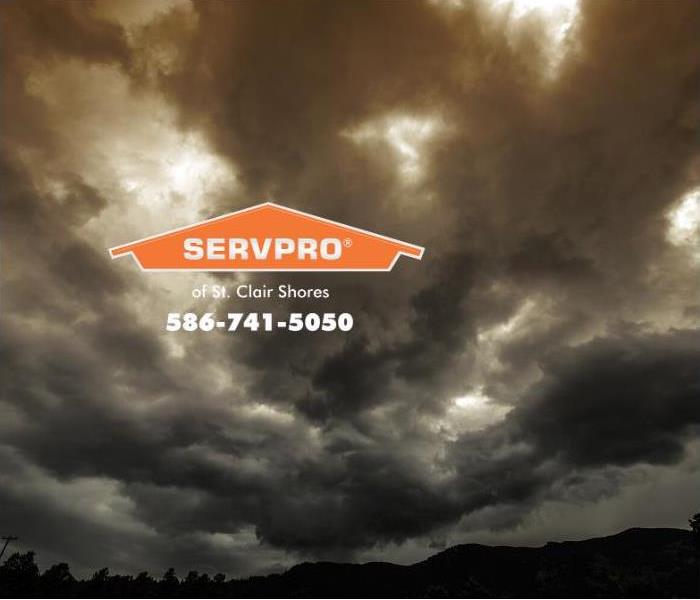 SERVPRO of St. Clair Shores doesn’t keep Roseville in the dark
SERVPRO of St. Clair Shores doesn’t keep Roseville in the dark
Weather Prediction
Roseville weather forecasts in the summer seem to always be either:
- Rain and thunderstorms are possible
- Rain and thunderstorms are likely
SERVPRO® of St. Clair Shores has no control over the weather, but we can prevent storm damage from increasing its destruction in Roseville homes or businesses.
Always Ready in an Emergency
Storms do a lot of damage in a short amount of time and water keeps doing more damage over time. The best response is therefore a speedy one. SERVPRO of St. Clair Shores is Faster to any size disaster. It is also available to respond to an emergency every day, including holidays and weekends, all day, even late at night or early in the morning.
Call (586) 741-5050 any time. SERVPRO of St. Clair Shores does not require Roseville to schedule its emergencies.
Whatever it takes
If a storm tears up a building, SERVPRO of St. Clair Shores provides board-ups and roof-tarps to keep the inside safe from the elements. Cleaning and restoration may be easier when the contents are in a separate space, so pack-up and move-out services are also available.
From water extraction to odor removal, from new coats of paint to repairing floors and cleaning upholstery, SERVPRO of St. Clair Shores will do whatever it takes to make the storm damage "Like it never even happened."®
SERVPRO of St. Clair Shores is Independently Owned and Operated.
Link:
https://www.SERVPROstclairshoresmi.com/storm-flooding-restoration
SERVPRO of St. Clair Shores shelters Roseville from Storms
7/13/2020 (Permalink)
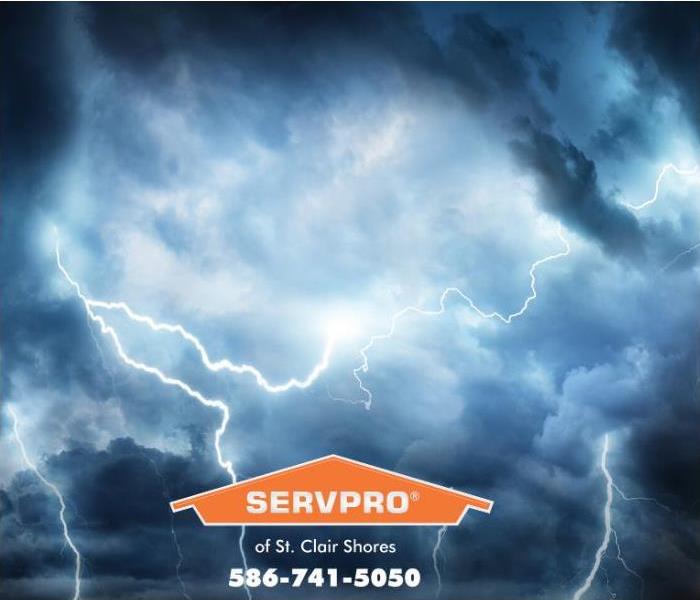 If it rains on a Roseville parade, SERVPRO of St. Clair Shores will clean it up
If it rains on a Roseville parade, SERVPRO of St. Clair Shores will clean it up
Major storms are common around Roseville. The weather service can explain the science behind summer storms; SERVPRO® of St. Clair Shores reserves its efforts for undoing damage from strong winds, lightning, floods and rain, and even hail.
Emergency-response crews are available 24 hours a day, every day. Disasters don’t wait for business hours to strike. SERVPRO of St. Clair Shores is always ready.
When disaster strikes a home or business, call SERVPRO of St. Clair Shores at (586) 741-5050.
Water, water everywhere
The most common storm damage in Roseville is from water. Water does plenty of damage by itself, soaking into property within minutes. Rainwater and groundwater bring outside contaminants. If lightning or wind exposes the inside to the elements, insects, fungi, and other contaminants get inside as well.
SERVPRO of St. Clair Shores starts extracting water immediately. Technicians have training and advanced equipment to remove even immense volumes of water. Dehumidifiers and dryers ensure that no hidden moisture remains to destroy property and allow microbial growth (such as mold) to cause more damage.
Once technicians have checked that the excess moisture is gone, the team starts decontamination and restoration. SERVPRO of St. Clair Shores favors restoration over replacement, making expenses less, and life easier, for the homeowners and business owners in Roseville. SERVPRO of St. Clair Shores has one goal: to get the property back to the pre-storm condition.
SERVPRO of St. Clair Shores is independently owned and operated.
Link:
https://www.SERVPROstclairshoresmi.com/
Storm Safety and Prevention Tips for The Villages Of Grosse Pointe Shores
3/31/2020 (Permalink)
 SERVPRO® technicians will respond to your storm damage emergency in St. Clair Shores 24 hours a day.
SERVPRO® technicians will respond to your storm damage emergency in St. Clair Shores 24 hours a day.
Winter storms in Michigan can be brutal and can cause power outages that can last for several days. Are you prepared in the event of an emergency power outage? Do you know what tools and safety items you should have on hand? According to the Federal Emergency Management Agency (FEMA), when a storm strikes it is important to have basic supplies of food and water and have ways to stay warm without power in the event of a winter power outage. SERVPRO® of St. Clair Shores wants to share some tips with commercial business and homeowners of The Villages Of Grosse Pointe Shores from FEMA for staying safe during a winter storm power outage:
- Emergency communication devices and plan
- Medical needs
- Tools and safety items
- Food/Supplies
- Warm Clothing and Blankets
- Critical documents
Visit www.ready.gov/kit for a full list of supplies and tips on creating a winter storm preparedness checklist. We know that home and business structures will experience damage due to winter storms. SERVPRO® of St. Clair Shores wants business owners and residents of The Villages of Grosse Pointe Shores to know that our highly trained professionals are available 24 hours a day to respond to any size storm damage emergency. Call us today at 586-741-5050 to find out about our storm cleanup and restoration services. We’ll take care of your storm damage “Like it never even happened.”
SERVPRO® of St. Clair Shores is Independently Owned and Operated.
We Repair Storm Damage to Your Home or Business in St. Clair Shores
3/2/2020 (Permalink)
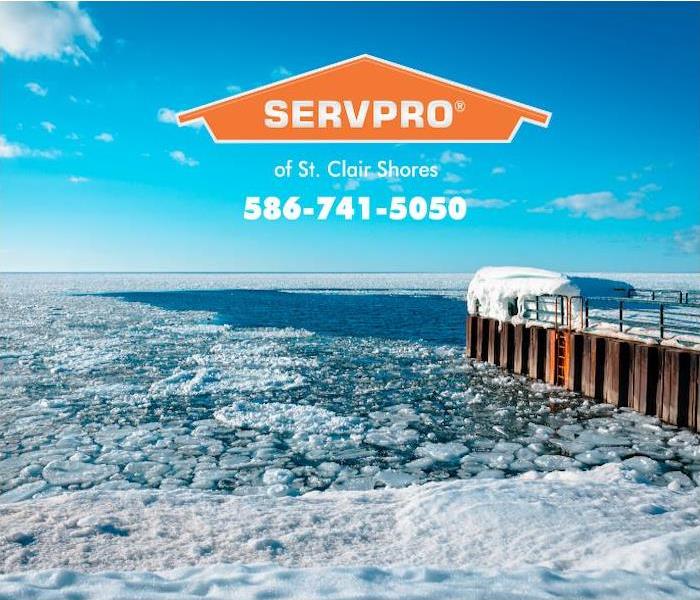 SERVPRO technicians will respond to your emergency in Eastpoint 24 hours a day.
SERVPRO technicians will respond to your emergency in Eastpoint 24 hours a day.
Winter storms can cause damage to your business or residence with little or no warning. Waiting even one week to repair damage caused by a storm can increase repair costs significantly. For instance, water, if allowed to stand for even a week may cause structural damage and cause the replacement of flooring, baseboards and drywall. SERVPRO® of St. Clair Shores want business and homeowners of Eastpointe to know that we are on hand to respond quickly to your property damage emergency. Our highly trained technicians use advanced technology to quickly identify the source of the damage and then use state-of-the-art techniques to quickly repair the damage. Some of the storm-related services offered are:
We hope you never experience winter storm damage, but if you do, we want to help. We are available 24 hours a day, seven days a week and have the specialized equipment necessary to safely clean and restore property damage for Eastpointe business owners and residents. Call us today at 586-741-5050 to find out about our cleanup and restoration services. We’ll take care of your storm damage “Like it never even happened.”
SERVPRO of St. Clair Shores is independently owned and operated.
Bring Your Pets When You Have to Evacuate Your Home.
11/27/2019 (Permalink)
 Bring Your Pets When You Have to Evacuate Your Home.
Bring Your Pets When You Have to Evacuate Your Home.
Roseville knows that the wind and the lake can combine to make storms seriously scary. If storms require evacuation, SERVPRO® of St. Clair Shores knows leaving pets behind is not an option. The Federal Emergency Management Association (FEMA) urges people to be prepared.
People and Pets Can Be Ready to Evacuate Roseville:
- For pets that wear collars, have securely attached tags with current information
- Some pets refuse to wear (or can't wear) collars, SERVPRO of St. Clair Shores recommends micro-chips for all pets, but especially these
- Loud noises, unfamiliar scents, and storm damage can scare pets and cause them to get loose, so keep photographs of the animals
- Prepare by identifying pet-friendly lodgings
- Keep harnesses or leashes and/or secure carriers for all pets
- Copies of any prescriptions
In an Emergency Kit:
- Copies of vaccinations, other records
- Printed descriptions of any special needs
- Three-day supply of water for each pet
- Three-day supply of food for each pet
- Three-day supply of all medication for each pet
- Just in case, pack a first-aid kit
- Extra bedding --- but try to bring something familiar
- Toys and treats
- Supplies for handling waste (litter box, litter)
If you come home to water damage or storm damage, Call SERVPRO of St. Clair Shores 24/7. We are Here to Help®, will repair damage “Like it never even happened.”
SERVPRO of St. Clair Shores is independently owned and operated.
Link: https://www.weather.gov/mqt/petsafety
Dangers of ice dams in St. Clair Shores, MI
11/18/2019 (Permalink)
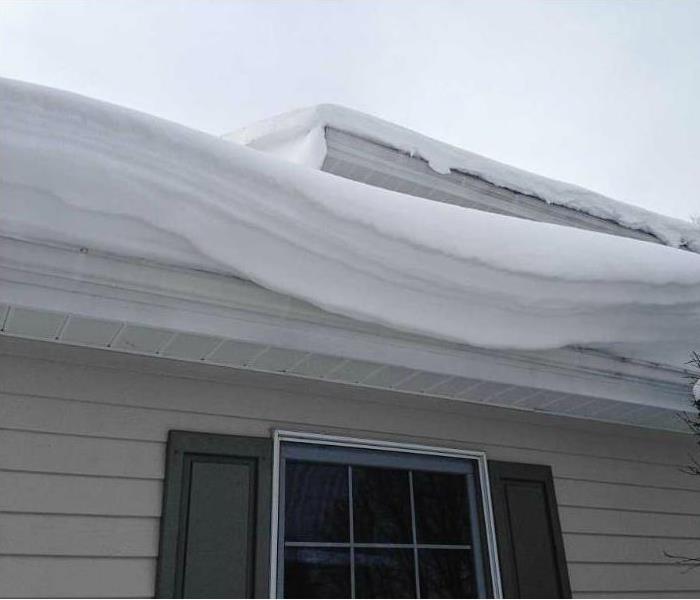 Don't let snow pile up!
Don't let snow pile up!
Prevent Ice Dams
Snow can accumulate quickly during our Michigan winter storms. It is important to not let an overabundance of snow build up on your roof. Too much snow on your roof can cause ice dams. Ice dams can cause your roof to leak and damage your home. If the temperature stays below freezing, the snow cannot melt. A general rule of thumb is to remove the snow if it builds up to 6 inches or more.
Snow removal can be accomplished by using a roof rake or shoveling. A roof rake is a safe way to go and can be done by the average homeowner. Shoveling should be done by a professional. Safety first!
Call SERVPRO of St. Clair Shores at (586) 741-5050 for your emergency water damage cleanup.
Is Your Roseville Home Insured for Winter Storm Damage?
11/18/2019 (Permalink)
 Review your Insurance!
Review your Insurance!
Make Sure You're Prepared
During the winter months your home is at risk for water damage. Melting snow can cause roof leaks or leak into your basement causing damage to your home and its contents. It is always a good idea to review your homeowner’s insurance policy to make sure you have adequate coverage. Be sure your policy has sufficient dwelling loss limits to cover rebuilding your home if disaster strikes. You may have to leave your home while repairs are made, so you need enough coverage for the loss of use. You also need to think about your contents. You want to have enough replacement cost coverage in case your belongings are damaged and need to be replaced. We are here for you 24/7. In case of an emergency call SERVPRO of St. Clair Shores (586) 741-5050.
Prepare for Ice Storms in St. Clair Shores, MI
11/17/2019 (Permalink)
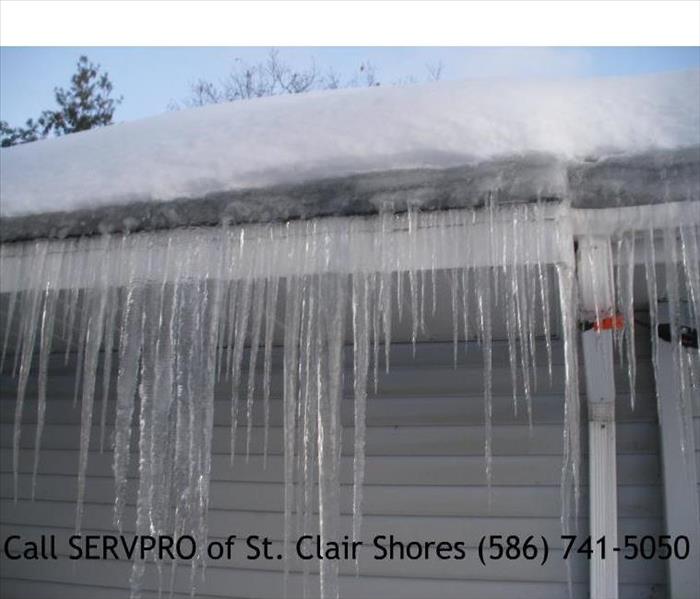 Ice storm in St. Clair Shores, MI
Ice storm in St. Clair Shores, MI
Be ready for Ice Storms in St. Clair Shores, MI
To avoid damage from a potential ice storm, you need to prepare ahead of time.
In case you're stuck at home for several days make sure you have enough non-perishable food and any supplies you may need including water, a cooler with ice and any necessary prescriptions. If you have canned foods, make sure you have a manual can opener.
It is always a good idea to have flashlights, batteries and candles on hand in case you lose power. And keep the doors to the refrigerator and freezer closed to help them retain colder temperatures.
Keep you cell phone charged, and If possible, have a secondary source of heat.
You should also have a first-aid kit, some cash and have your vehicle filled with gas, according to FEMA.
If you have trees near your home, prune branches or remove trees that are too close before the ice storm to avoid the potential of falling trees or limbs on your home.
We are here for you 24/7. In case of an emergency call SERVPRO of St. Clair Shores (586) 741-5050
Thunderstorm Season is Coming. Are you Ready?
4/12/2019 (Permalink)
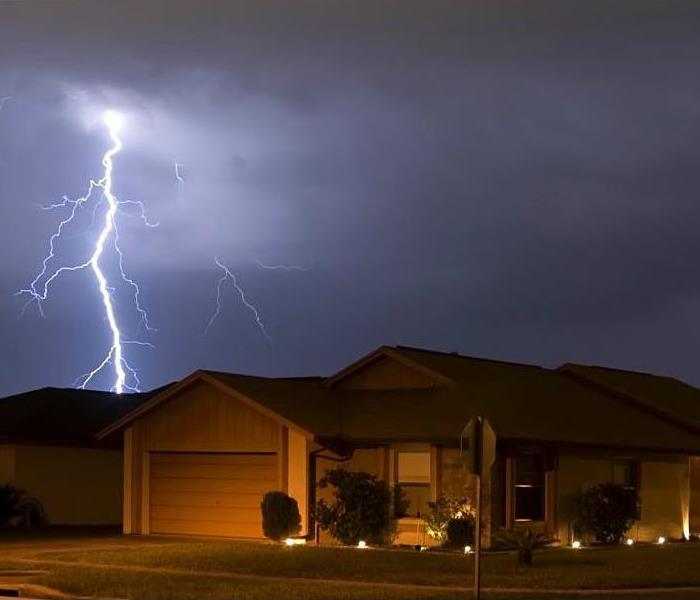 Thunderstorm Season in Roseville, MI
Thunderstorm Season in Roseville, MI
Under the right conditions, rainfall from thunderstorms can cause flash flooding. Lightning is responsible for many fires around the world each year, and causes fatalities. Hail up to the size of softballs damages cars and windows, and kills livestock caught out in the open. Strong (up to more than 120 mph) straight-line winds associated with thunderstorms knock down trees, power lines and mobile homes. Tornadoes (with winds up to about 300 mph) can destroy all but the best-built man-made structures.
Storm and flood damage require specialized restoration techniques and equipment. When a storm hits your St Clair Shores home, you need the company with storm damage experience and expertise. SERVPRO of St. Clair Shores can respond immediately to storm and flooding conditions. Keep our number handy in case of an emergency (586) 741-5050.
Do's & Don'ts After a Flooding
4/12/2019 (Permalink)
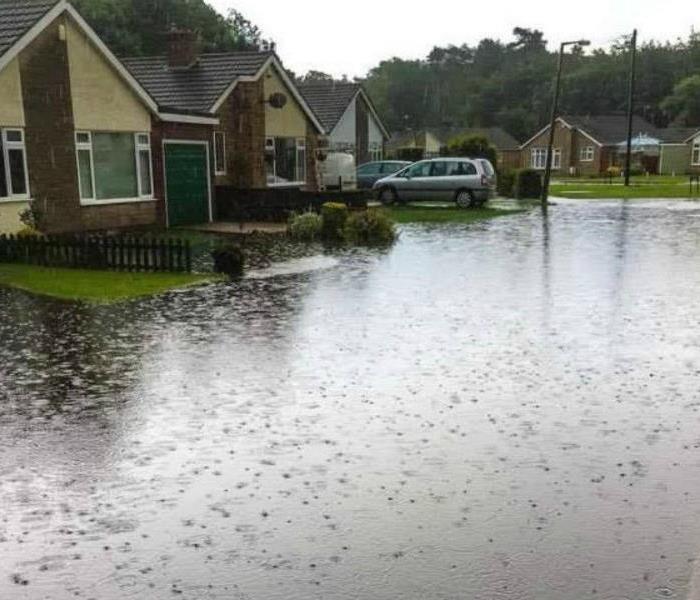 Flood Season is Here in Eastpointe, MI
Flood Season is Here in Eastpointe, MI
What to Do After Flooding
- Remove excess water by mopping and blotting.
- Wipe excess water from wood furniture after removal of lamps and tabletop items.
- Remove and prop wet upholstery and cushions.
- Place aluminum foil or wood blocks between furniture legs and wet carpeting.
- Turn air conditioning on for maximum drying in summer.
- Remove colored rugs from wet carpeting.
- Remove art objects to a safe, dry place.
- Gather loose items from floors.
What NOT to Do After Flooding
- Don't leave wet fabrics in place. Hang furs and leather goods.
- Don't leave books, magazines or other colored items on wet carpet or floors.
- Don't use your household vacuum to remove water.
- Don't use television or other household appliances.
- Don't turn on ceiling fixtures if ceiling is wet, and keep out of rooms where ceilings are sagging.
If you experience a flood, call us @ SERVPRO of St. Clair Shores (586) 741-5050.
Tornado Safety Tips
4/10/2019 (Permalink)
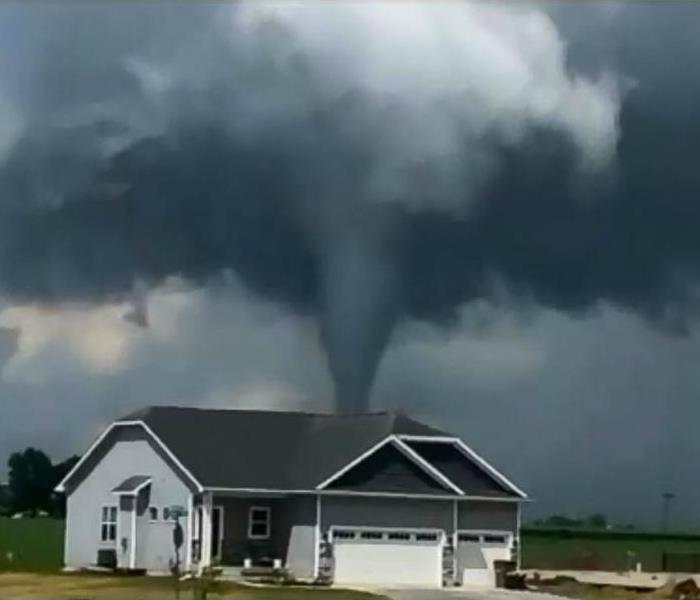 Tornado safety in St. Clair Shores, MI
Tornado safety in St. Clair Shores, MI
IF YOU ARE UNDER A TORNADO WARNING, FIND SAFE SHELTER RIGHT AWAY
- If you can safely get to a sturdy building, then do so immediately.
- Go to a safe room, basement, or storm cellar.
- If you are in a building with no basement, then get to a small interior room on the lowest level.
- Stay away from windows, doors, and outside walls.
- Do not get under an overpass or bridge. You’re safer in a low, flat location.
- Watch out for flying debris that can cause injury or death.
- Use your arms to protect your head and neck.
- Keep listening to EAS, NOAA Weather Radio, and local authorities for updated information.
- If you are trapped, cover your mouth with a cloth or mask to avoid breathing dust.
- Try to send a text, bang on a pipe or wall, or use a whistle instead of shouting.
- Stay clear of fallen power lines or broken utility lines.
- Do not enter damaged buildings until you are told that they are safe.
- Save your phone calls for emergencies. Phone systems are often down or busy after a disaster. Use text messaging or social media to communicate with family and friends.
- Be careful during clean-up. Wear thick-soled shoes, long pants, and work gloves.
Remember if disaster strikes, strike back by calling SERVPRO of St. Clair Shores (586) 741-5050.
Storm Damage at your St. Clair Shores Home?
11/19/2018 (Permalink)
Storm and flood damage require specialized restoration techniques and equipment. When a storm hits your St Clair Shores home, you need the company with storm damage experience and expertise. SERVPRO of St. Clair Shores can respond immediately to storm and flooding conditions.
We're Faster to Any Size Disaster
When a storm hits your St Clair Shores home or business, you need help immediately. Our quick response will help prevent secondary damage and help reduce restoration costs.
Learn More
We're Highly Trained Storm Damage Specialists
We are storm and water damage specialists who get started promptly to get your property dry and back to pre-storm condition. Using advanced equipment and scientific drying techniques, we document the drying process to validate your home or business is ready.
- Water Damage Restoration Technician
- Applied Structural Drying Technicians
Learn More
We Have the Resources to Handle Storms and Disasters
Major storms and flooding events can overwhelm many restoration companies. On the other hand, SERVPRO of St. Clair Shores can access resources from 1,700 Franchises across the state and country and even utilize Disaster Recovery Teams for major storms and disasters.
Learn More
We are here for you 24/7. In case of an emergency call SERVPRO of St. Clair Shores (586) 741-5050.
Preparing for Winter in Roseville, MI
11/19/2018 (Permalink)
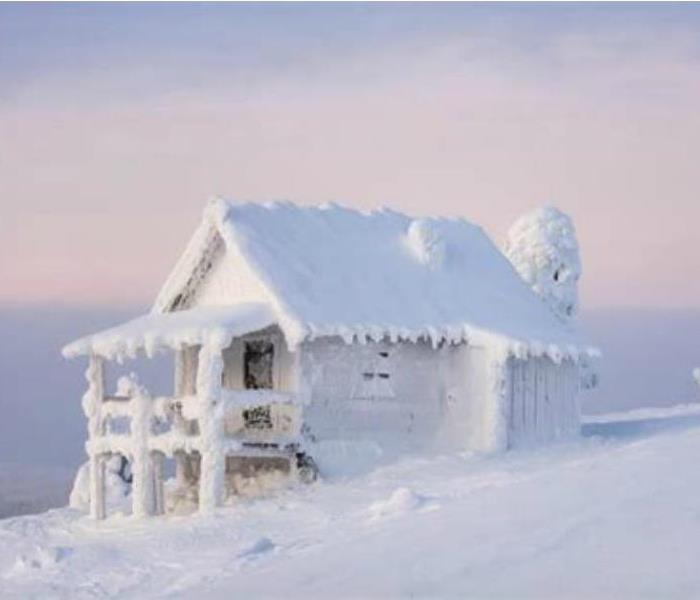 Cold Weather is Approaching in Roseville, MI
Cold Weather is Approaching in Roseville, MI
The cold weather is approaching and here are some tips to prepare your Roseville, MI home.
- Add more insulation to your attic, if you have one. Heat rises, and will escape through a poorly insulated attic. Fiberglass insulation comes in rolls with paper backing that you can roll and tack up to winterize your home.
- Caulk cracks around windows and doors to eliminate drafts. Use water resistant caulk on the outside of buildings.
- Add weather stripping to doors and windows when winterizing buildings.
- Install outlet gaskets to electric outlets located on outer walls. The gaskets will eliminate drafts when you prepare your house for winter.
- Clean your furnace, if you have one, and replace the air filter. Dirty air filters clog the flow of air and could start a fire.
- Service your wood burning stove. Have a professional chimney sweep come out to clean and inspect your wood stove when preparing your house for winter.
- Close off rooms that are not in use. Try to confine areas in your home that don’t require heating.
- Stay Safe! Keep our phone number handy in case of any emergency. Call SERVPRO 24/7 @ (586) 741-5050.
Emergency Kit
11/19/2018 (Permalink)
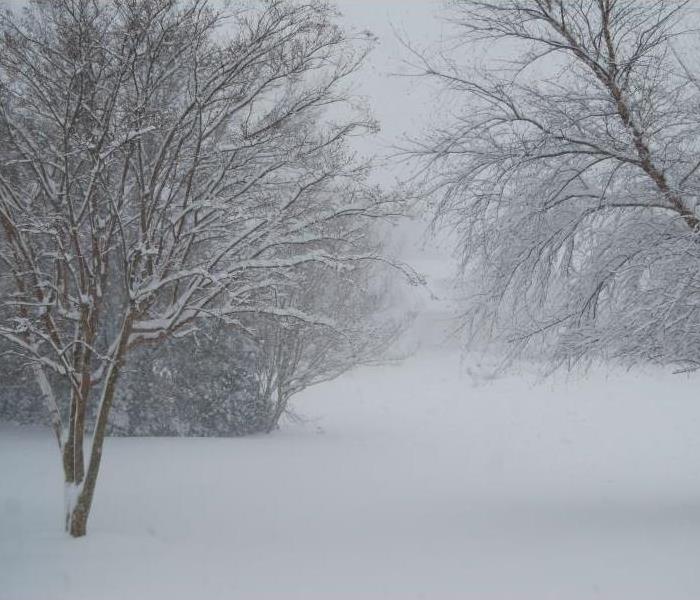 Be Prepared!
Be Prepared!
Storms can come at any minute in
Clinton Township, MI. They also can go from calm to very severe just as quickly. Be prepared at your home and business with an Emergency Kit. Ready.gov suggests you have enough supplies to last for at least three days. Below are some suggested items to include in your kit:
- 3-day supply of nonperishable foods
- Water (one+ gallon per person per day)
- First-aid kit
- Prescription medication
- Sleeping bag or blankets
- Fire extinguisher
- Hygiene products
- Flashlights
- Extra batteries
- Cell phone charger
- Change of clothes
- Matches in waterproof container
- Wrench or pliers to turn off utilities
- Whistle to signal for help
- Pet supplies
- Infant formula and diapers
- Important documents such as insurance policies, IDs, and bank records in a plastic container
It is also suggested you keep a condensed emergency kit in your vehicle as well. For a more extensive list, go to Ready.gov.
We are here for you 24/7. In case of an emergency call SERVPRO of St. Clair Shores (586) 741-5050.
Ice Storm Facts
4/17/2018 (Permalink)
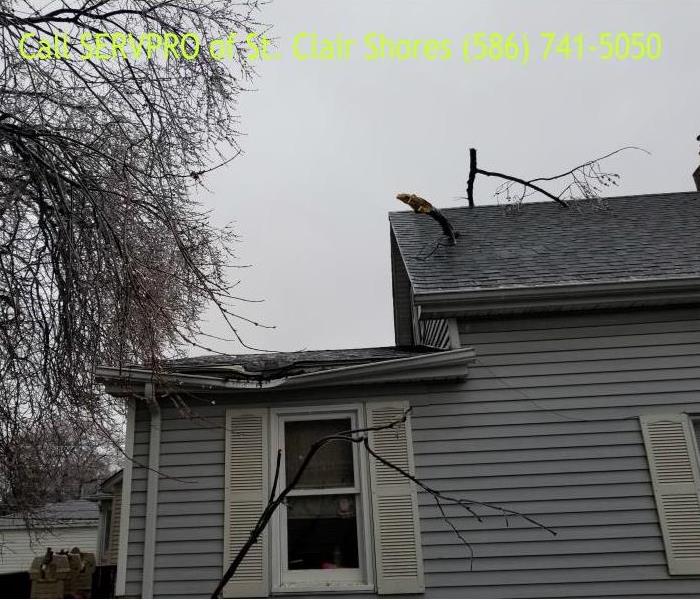 Ice Storm Damage in St. Clair Shores, MI
Ice Storm Damage in St. Clair Shores, MI
Ice Storm Facts
You may hear forecasters talk about ice accumulations this week and wonder, "Will I lose power, or will the roads just be slippery?"
Just a thin coating of ice can result in a travel nightmare, while heavier amounts will severely damage trees and power lines. Strong winds can add extra force to already weighted down tree branches and power lines, increasing the likelihood of significant damage.
- Ice can increase the weight of branches by 30 times.
- A 1/2-inch accumulation on power lines can add 500 pounds of extra weight.
- An ice storm in 2009 centered from northern Arkansas to the Ohio Valley knocked out power to 1.3 million.
- In 1998, an ice storm in northern New York and northern New England damaged millions of trees and caused $1.4 billion in damage. Accumulations were as much as three inches thick!
- Stay Safe! Keep our phone number handy in case of any emergency. Call SERVPRO 24/7 @ (586) 741-5050.
Cracked Roof Flashing Could Cause Water Leaks
4/13/2018 (Permalink)
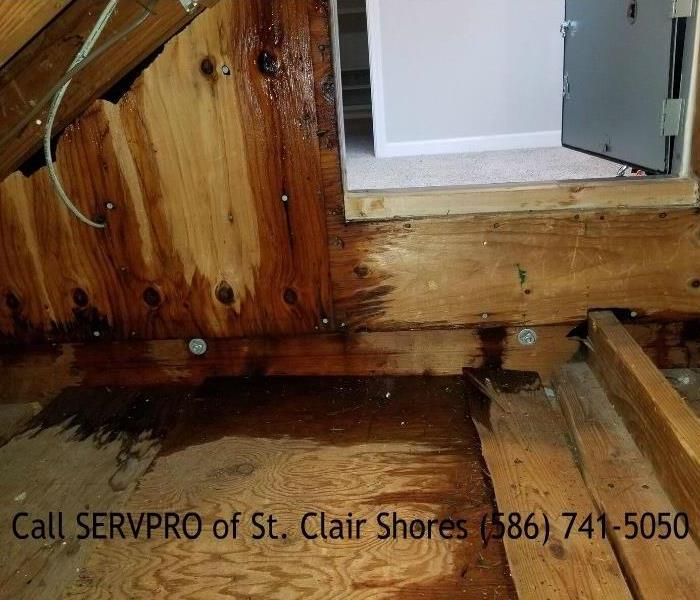 Roof Leak in Grosse Pointe, MI
Roof Leak in Grosse Pointe, MI
Cracked Roof Flashing Could Cause Water Leaks
What Does It Look Like: Flashing are thin pieces of metal that are installed under shingles and on the joints of your roof in order to create a water-resistant barrier, which can be concealed or exposed. If exposed, they will look like long runs of sheet metal and, if concealed, they will have a rubberized coating overtop. Broken flashing will feature large cracks
Why It Happens: Roofers often use tar to seal the flashing together and that can corrode over time. In the event that your flashing is left exposed, elements like wind and rain could be the reason behind its crack.
How To Fix It: (Via The Family Handyman): Once you locate the source of the leak, pry up the nails used to secure the old flashing. Lift any shingles out of the way and remove the cracked segment. Gently put a new run of flashing in its place, fasten the new flashing in the same pattern as your old piece using roofing nails. Then, apply a coat of roofing sealant to the nail heads.
Keep our phone number handy! Call SERVPRO of St. Clair Shores (586) 741-5050.
Thunderstorms & Lightning - Are You Prepared?
4/11/2018 (Permalink)
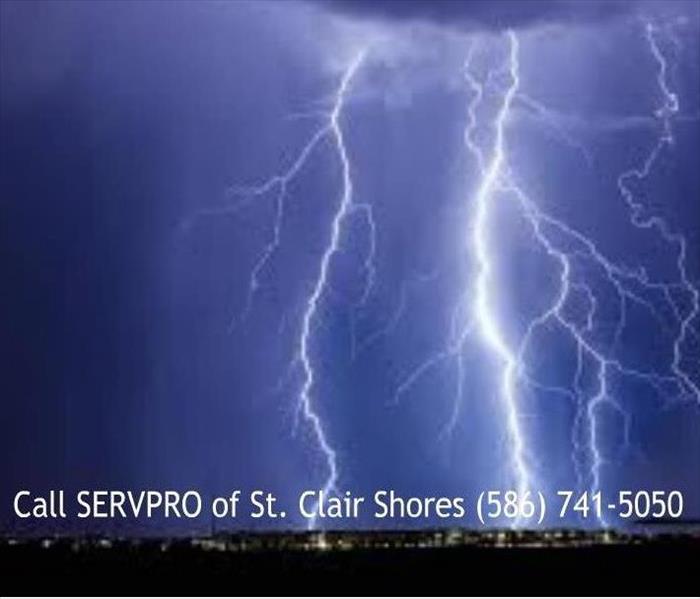 Are You Prepared?
Are You Prepared?
Thunderstorms & Lightning
by ready.gov
All thunderstorms are dangerous. Every thunderstorm produces lightning. While lightning fatalities have decreased over the past 30 years, lightning continues to be one of the top three storm-related killers in the United States. On average in the U.S., lightning kills 51 people and injures hundreds more. Although most lightning victims survive, people struck by lightning often report a variety of long-term, debilitating symptoms.
Other associated dangers of thunderstorms include tornadoes, strong winds, hail and flash flooding. Flash flooding is responsible for more fatalities – more than 140 annually – than any other thunderstorm-associated hazard. Dry thunderstorms that do not produce rain that reaches the ground are most prevalent in the western United States. Falling raindrops evaporate, but lightning can still reach the ground and can start wildfires.
Before Thunderstorm and Lightning
To prepare for a thunderstorm, you should do the following:
- To begin preparing, you should build an emergency kit and make a family communications plan.
- Remove dead or rotting trees and branches that could fall and cause injury or damage during a severe thunderstorm.
- Postpone outdoor activities.
- Secure outdoor objects that could blow away or cause damage.
- Get inside a home, building, or hard top automobile (not a convertible). Although you may be injured if lightning strikes your car, you are much safer inside a vehicle than outside.
- Remember, rubber-soled shoes and rubber tires provide NO protection from lightning. However, the steel frame of a hard-topped vehicle provides increased protection if you are not touching metal.
- Shutter windows and secure outside doors. If shutters are not available, close window blinds, shades or curtains.
- Unplug any electronic equipment well before the storm arrives.
Lightning Risk Reduction When Outdoors
- If you are in a forest then, seek shelter in a low area under a thick growth of small trees.
- In an open area, go to a low place such as a ravine or valley. Be alert for flash floods.
- On open water, get to land and find shelter immediately.
Facts about Thunderstorms
- They may occur singly, in clusters or in lines.
- Some of the most severe occur when a single thunderstorm affects one location for an extended time.
- Thunderstorms typically produce heavy rain for a brief period, anywhere from 30 minutes to an hour.
- Warm, humid conditions are highly favorable for thunderstorm development.
- About 10 percent of thunderstorms are classified as severe – one that produces hail at least an inch or larger in diameter, has winds of 58 miles per hour or higher or produces a tornado.
Facts about Lightning
- Lightning’s unpredictability increases the risk to individuals and property.
- Lightning often strikes outside of heavy rain and may occur as far as 10 miles away from any rainfall.
- “Heat lightning” is actually lightning from a thunderstorm too far away from thunder to be heard. However, the storm may be moving in your direction.
- Most lightning deaths and injuries occur when people are caught outdoors in the summer months during the afternoon and evening.
- Your chances of being struck by lightning are estimated to be 1 in 600,000 but could be reduced even further by following safety precautions.
- Lightning strike victims carry no electrical charge and should be attended to immediately.
Know the Terms
Familiarize yourself with these terms to help identify a thunderstorm hazard:
Severe Thunderstorm Watch - Tells you when and where severe thunderstorms are likely to occur. Watch the sky and stay tuned to NOAA Weather Radio, commercial radio or television for information.
Severe Thunderstorm Warning - Issued when severe weather has been reported by spotters or indicated by radar. Warnings indicate imminent danger to life and property to those in the path of the storm.
During Thunderstorms and Lightning
If thunderstorm and lightning are occurring in your area, you should:
- Use your battery-operated NOAA Weather Radio for updates from local officials.
- Avoid contact with corded phones and devices including those plugged into electric for recharging. Cordless and wireless phones not connected to wall outlets are OK to use.
- Avoid contact with electrical equipment or cords. Unplug appliances and other electrical items such as computers and turn off air conditioners. Power surges from lightning can cause serious damage.
- Avoid contact with plumbing. Do not wash your hands, do not take a shower, do not wash dishes, and do not do laundry. Plumbing and bathroom fixtures can conduct electricity.
- Stay away from windows and doors, and stay off porches.
- Do not lie on concrete floors and do not lean against concrete walls.
- Avoid natural lightning rods such as a tall, isolated tree in an open area.
- Avoid hilltops, open fields, the beach or a boat on the water.
- Take shelter in a sturdy building. Avoid isolated sheds or other small structures in open areas.
- Avoid contact with anything metal—tractors, farm equipment, motorcycles, golf carts, golf clubs, and bicycles.
- If you are driving, try to safely exit the roadway and park. Stay in the vehicle and turn on the emergency flashers until the heavy rain ends. Avoid touching metal or other surfaces that conduct electricity in and outside the vehicle.
After a Thunderstorm or Lightning Strike
If lightning strikes you or someone you know, call 9-1-1 for medical assistance as soon as possible. The following are things you should check when you attempt to give aid to a victim of lightning:
- Breathing - if breathing has stopped, begin mouth-to-mouth resuscitation.
- Heartbeat - if the heart has stopped, administer CPR.
- Pulse - if the victim has a pulse and is breathing, look for other possible injuries. Check for burns where the lightning entered and left the body. Also be alert for nervous system damage, broken bones and loss of hearing and eyesight.
After the storm passes remember to:
- Never drive through a flooded roadway. Turn around, don’t drown!
- Stay away from storm-damaged areas to keep from putting yourself at risk from the effects of severe thunderstorms.
- Continue to listen to a NOAA Weather Radio or to local radio and television stations for updated information or instructions, as access to roads or some parts of the community may be blocked.
- Help people who may require special assistance, such as infants, children and the elderly or those with access or functional needs.
- Stay away from downed power lines and report them immediately.
Watch your animals closely. Keep them under your direct control
We are here for you 24/7. In case of an emergency call SERVPRO of St. Clair Shores (586) 741-5050.
Snowstorms & Extreme Cold - Knowing your risk.
11/21/2017 (Permalink)
Snowstorms & Extreme Cold
This explains what actions to take when you receive a winter weather storm alert from the National Weather Service for your local area and what to do before, during, and after a snowstorm or extreme cold.
Know your risk
What
A winter storm occurs when there is significant precipitation and the temperature is low enough that precipitation forms as sleet or snow, or when rain turns to ice. A winter storm can range from freezing rain and ice, to moderate snowfall over a few hours, to a blizzard that lasts for several days. Many winter storms are accompanied by dangerously low temperatures.
Winter storms can cause power outages that last for days. They can make roads and walkways extremely dangerous or impassable and close or limit critical community services such as public transportation, child care, health programs and schools. Injuries and deaths may occur from exposure, dangerous road conditions, and carbon monoxide poisoning and other conditions.
Where
Winter storms and colder than normal temperatures can happen in every region of the country.
When
Winter storms can occur from early autumn to late spring depending on the region.
During Snowstorms and Extreme Cold
- Stay indoors during the storm.
- Drive only if it is absolutely necessary. If you must drive: travel in the day; don’t travel alone; keep others informed of your schedule and your route; stay on main roads and avoid back road shortcuts.
- Walk carefully on snowy, icy, walkways.
- Avoid overexertion when shoveling snow. Overexertion can bring on a heart attack—a major cause of death in the winter. Use caution, take breaks, push the snow instead of lifting it when possible, and lift lighter loads.
- Keep dry. Change wet clothing frequently to prevent a loss of body heat. Wet clothing loses all of its insulating value and transmits heat rapidly.
- If you must go outside, wear several layers of loose-fitting, lightweight, warm clothing rather than one layer of heavy clothing. The outer garments should be tightly woven and water repellent.
- Wear mittens, which are warmer than gloves.
- Wear a hat and cover your mouth with a scarf to reduce heat loss.
Cold Related Illness
Frostbite is a serious condition that’s caused by exposure to extremely cold temperatures.
Hypothermia, or abnormally low body temperature, is a dangerous condition that can occur when a person is exposed to extremely cold temperatures. Hypothermia is caused by prolonged exposures to very cold temperatures. When exposed to cold temperatures, your body begins to lose heat faster than it’s produced. Lengthy exposures will eventually use up your body’s stored energy, which leads to lower body temperature.
Warnings signs of hypothermia:
- Adults: shivering, exhaustion, confusion, fumbling hands, memory loss, slurred speech drowsiness
- Infants: bright red, cold skin, very low energy
If you notice any of these signs, take the person’s temperature. If it is below 95° F, the situation is an emergency—get medical attention immediately.
Carbon Monoxide
Caution: Each year, an average of 430 Americans die from unintentional carbon monoxide poisoning, and there are more than 20,000 visits to the emergency room with more than 4,000 hospitalizations. Carbon monoxide-related deaths are highest during colder months. These deaths are likely due to increased use of gas-powered furnaces and alternative heating, cooking, and power sources used inappropriately indoors during power outages.
Never use a generator, grill, camp stove or other gasoline, propane, natural gas or charcoal¬ burning devices inside a home, garage, basement, crawlspace or any partially enclosed area. Locate unit away from doors, windows and vents that could allow carbon monoxide to come indoors. Keep these devices at least 20 feet from doors, windows, and vents.
The primary hazards to avoid when using alternate sources for electricity, heating or cooking are carbon monoxide poisoning, electric shock and fire.
Install carbon monoxide alarms in central locations on every level of your home and outside sleeping areas to provide early warning of accumulating carbon monoxide.
If the carbon monoxide alarm sounds, move quickly to a fresh air location outdoors or by an open window or door.
- Call for help from the fresh air location and remain there until emergency personnel arrive to assist you.
Stay or Go
STAY:
If stuck on the road to avoid exposure and/or when rescue is likely
If a safe location is neither nearby or visible
If you do not have appropriate clothing to go outside
- If you do not have the ability to call for help
GO:
If the distance to call for help is accessible.
If you have visibility and outside conditions are safe.
If you have appropriate clothing.
- Once the storm has passed, if you are not already home, follow instructions from your local transportation department and emergency management agency to determine if it is safe to drive and, if so, which route will be safest for you to get home. Drive with extra caution.
After Snowstorms and Extreme Cold
If your home loses power or heat for more than a few hours or if you do not have adequate supplies to stay warm in your home overnight, you may want to go to a designated public shelter if you can get there safely. Text SHELTER + your ZIP code to 43362 (4FEMA) to find the nearest shelter in your area (e.g., SHELTER20472)
Bring any personal items that you would need to spend the night (such as toiletries, medicines). Take precautions when traveling to the shelter. Dress warmly in layers, wear boots, mittens, and a hat.
- Continue to protect yourself from frostbite and hypothermia by wearing warm, loose-fitting, lightweight clothing in several layers. Stay indoors, if possible.
Storm Damage to your business? We Can Help!
11/21/2017 (Permalink)
Winter Storm – Snow and Ice Storm Damage – Commercial Insurance Claims
SERVPRO of St. Clair Shores has the experience and knowledge to help you with your claim. Contact us today!
SERVPRO of St. Clair Shores - (586) 741-5050
Flood and Fire Cleanup and Restoration - Disaster Recovery Services
A winter storm can bring with it sleet, ice, high winds, and heavy snow, which can result in sudden unexpected commercial property damage. Feet of heavy wet snow can cause roofs and structures to collapse; high winds can tear siding; and icing can down trees and power lines. As large commercial buildings often have flat roofs, they are more susceptible to collapse, thereby increasing their chances of suffering damage after a storm.
If your business has been damaged due to a winter storm, make one of your first calls be to SERVPRO of St. Clair Shores. We are seasoned experts in dealing with the damages wrought by snow and ice. We are experts in the commercial property insurance claims process, and we take pride in helping our clients achieve a full recovery. Starting with a thorough investigation of your business’ property loss, we will lead you through the entire claim filing process—accurately preparing, documenting and submitting your insurance claim and through the entire cleanup and repair of your business. Call us now at (586) 741-5050.
Before Snowstorms and Extreme Cold
11/21/2017 (Permalink)
Before Snowstorms and Extreme Cold
- Make a Family Communications Plan. Your family may not be together when disaster strikes, so it is important to know how you will contact one another, how you will get back together and what you will do in case of an emergency.
- Make an emergency kit for at least three days of self-sufficiency.
- Keep space heater safety in mind: Use electric space heaters with automatic shut-off switches and non-glowing elements. Remember to keep all heat sources at least three feet away from furniture and drapes.
- Prepare your home:
- Make sure your home is well insulated and that you have weather stripping around your doors and window sills to keep the warm air inside.
- Make sure you have a working carbon monoxide detector.
- Keep fire extinguishers on hand, and make sure everyone in your house knows how to use them. House fires pose an additional risk, as more people turn to alternate heating sources without taking the necessary safety precautions.
- Learn how to shut off water valves (in case a pipe bursts).
- Insulate your home by installing storm windows or covering windows with plastic from the inside to keep cold air out.
- Hire a contractor to check the structural ability of the roof to sustain unusually heavy weight from the accumulation of snow - or water, if drains on flat roofs do not work.
- If you have a wood burning fireplace, consider storing wood to keep you warm if winter weather knocks out your heat. Also, make sure you have your chimney cleaned and inspected every year.
- Have at least one of the following heat sources in case the power goes out:
- Extra blankets, sleeping bags and warm winter coats
- Fireplace or wood-burning stove with plenty of dry firewood, or a gas log fireplace
- Prepare your vehicle:
- Fully winterize your vehicle: Have a mechanic check antifreeze, brakes, heater and defroster, tires, and windshield wipers to ensure they are in good shape. Keep your gas tank at least half full.
- Keep an extra emergency kit specifically created for your car. In addition to the basic essentials, consider adding a portable cell phone charger, ice scraper, extra blanket, sand for traction and jumper cables.
- Rock salt or more environmentally safe products to melt ice on walkways. Visit the Environmental Protection Agency for a complete list of recommended products.
- Sand to improve traction.
- Make sure you have a cell phone with an emergency charging option (car, solar, hand crank, etc.) in case of a power failure.
- People who depend on electricity to operate medical equipment should have alternate arrangements in place in case power is out for an extended period of time.
- Plan to check on elderly/disabled relatives and neighbors.
- Plan to bring pets inside.
- Know where the manual release lever of your electric garage door opener is located and how to operate it in case you lose power.
- Fill a gallon container with water and place them in the freezer to help keep food cold.
- A NOAA Weather Radio broadcasts alerts and warnings directly from the NWS for all hazards. You may also sign up in advance to receive notifications from your local emergency services.
We hope these helpful tips help you in planning for this Winter. If you experience damage to your home or business, don't hesitate to give us a call at 586-741-5050. SERVPRO of St. Clair Shores is here 24/7 for your emergency needs!
Do you know the Winter Weather Watches and Warnings
11/21/2017 (Permalink)
Knowing the differences can affect you and your family! Here are the definitions of each to help you this Winter.
Keep SERVPRO of St. Clair Shores in mind this winter if you experience any kind of Winter Storm Damage to your home or business. We are always Here to Help at 586-741-5050.
Winter Weather Watches and Warnings
- Familiarize yourself with these terms to help identify an extreme winter weather alerts:
Freezing Rain - Rain that freezes when it hits the ground, creating a coating of ice on roads, walkways, trees and power lines.
Sleet - Rain that turns to ice pellets before reaching the ground. Sleet also causes moisture on roads to freeze and become slippery.
Wind Chill- Windchill is the temperature it “feels like” when you are outside. The NWS provides a Windchill Chart to show the difference between air temperature and the perceived temperature and the amount of time until frostbite occurs. For more information, visit: http://www.nws.noaa.gov/om/winter/windchill.shtml.
Winter Weather Advisory - Winter weather conditions are expected to cause significant inconveniences and may be hazardous. When caution is used, these situations should not be life threatening. The NWS issues a winter weather advisory when conditions are expected to cause significant inconveniences that may be hazardous. If caution is used, these situations should not be life-threatening.
Winter Storm Watch - A winter storm is possible in your area. Tune in to NOAA Weather Radio, commercial radio, or television for more information. The NWS issues a winter storm watch when severe winter conditions, such as heavy snow and/or ice, may affect your area but the location and timing are still uncertain. A winter storm watch is issued 12 to 36 hours in advance of a potential severe storm. Tune in to NOAA Weather Radio, local radio, TV, or other news sources for more information. Monitor alerts, check your emergency supplies, and gather any items you may need if you lose power.
Winter Storm Warning - A winter storm is occurring or will soon occur in your area.
Blizzard Warning - Sustained winds or frequent gusts to 35 miles per hour or greater and considerable amounts of falling or blowing snow (reducing visibility to less than a quarter mile) are expected to prevail for a period of three hours or longer.
Frost/Freeze Warning - Below freezing temperatures are expected
6 Things you should do after a flood
6/19/2017 (Permalink)
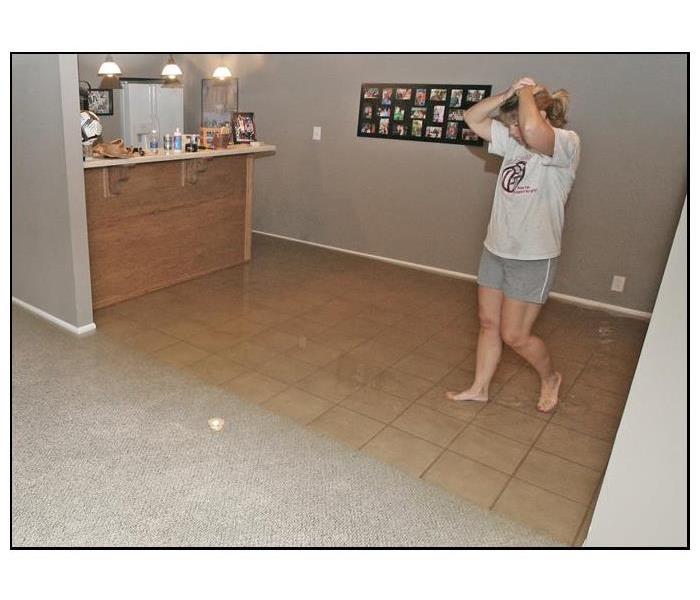 Flooded Basement
Flooded Basement
6 Things You Should Do After Your House Floods
Erin Doman on May 4, 2016 One of the most damaging and devastating things you can ever experience as a homeowner is a flood. There are many causes of household flooding including:
- Heavy rains
- Sewer back-up
- Malfunctioning sump-pump
- Burst pipes
No matter what the cause, you should still know what you should do if your house floods. Taking care of the problem earlier will help reduce the amount of damage after and will make clean-up and repair easier.
1. Safety First
The first step in any major home disaster is to remain safe. You may be forced to leave your home if the flooding is bad enough. Make sure you are also safe when you return to your home to begin dealing with the aftermath. This may include turning off the power, as water and electricity obviously do not mix. Be sure to wear protective clothing–such as rubber boots and gloves–when you reenter your home. Not only will you be dealing with the water itself, but also whatever else the water has been in contact with, namely debris or even sewage. It is best to protect yourself against whatever harmful chemicals and items the flooding may have washed in.
Be sure to never eat food that has been contaminated by flood waters, or even in close proximity to the water for an extended period of time. If the water was high enough to reach your refrigerator or any of your pantry cabinets, it is safest practice to go ahead and throw the food away and just buy more. Be sure to thoroughly wash any dinnerware, glasses, and flatware that might have been caught in the house flood before you use it again.
2. Stopping and Removing Water
One of the first things you should do when your house floods is stop the source of water coming in if at all possible. If your sump-pump is broken or malfunctioning, replacing it will help keep up with any continuing rains and may prevent further damage to your basement, garage, crawl space, or main floor. Calling the city to remove debris from storm drains may also be necessary in order to help stop flooding.
If your flooded home was caused by a burst pipe, fix the plumbing as soon as possible to lessen water damage. The sooner you stop the water from coming in, the sooner you can get to cleaning up and repairing any damages.
After that, it’s time to remove the water. Depending on the level of flooding you have experienced or even the rooms in your home that have been affected, your process might change. You may need to bail water out using buckets and bins or use hoses to drain large amounts of water from your basement. As the water begins receding, you can use a wet vacuum to suck remaining bits of water and moisture from carpets and floors. If you’re lucky and the damage is minimal, you might be able to simply mop the mess up.
Click Here to contact SERVPRO of St. Clair Shores3. Drying Out Your Home
Even if you are successful in removing all of the standing water from your home, everything will remain damp and wet, especially if heavy rains have increased the humidity in your area. If you have power, use your air conditioning and portable fans to help dry the wet areas of your home.
Dehumidifiers are also a big help, especially in closed off spaces such as basements or crawl spaces. Dehumidifiers work by removing excess moisture from the air. This is the easiest way to dry out your home and minimize the potential water damage you might be dealing with, as it does not require you to actively clean. However, in the case of a house flood, dehumidifiers are only supplemental and you are likely to need multiple methods of action. Dehumidifiers are recommended for anyone who lives in a damp climate or an area that experiences longer rainy seasons, as they can prevent some of the problems associated with this type of weather, both for you and your home.
4. Calling the Insurance Company
Your homeowners’ insurance will vary depending on what policies you have, but many insurance companies cover flooding due to storms, backed-up city sewers and storm drains, broken sump-pumps or burst pipes. The insurance company will send an adjuster to look at and assess the damage and determine if it is a covered loss. If your losses and damages are covered, the sooner you call the insurance company, the sooner they will pay out. Repairs can become costly, but the insurance money will help get your home back in order quicker with less of a financial burden on you.
Your insurance company may not be able to send an adjuster right away, especially if your flooding is part of a larger weather event. Document values of everything and take as many photos as possible before, during, and after clean-up. This will help the adjuster when he or she is able to come assess the damage.
5. Clean-Up
Once the water is gone and you have called your insurance company, it’s time to begin post-flood care. You can call in a professional clean-up crew or else begin work yourself. This may involve determining what is salvageable and throwing away anything that is too damaged or no longer safe to use. If the flooding in your home was widespread, you may have to bring in a roll-off dumpster for easy disposal of larger damaged items, as you will find your trash bags filling quickly.
Be aware that you may need to remove flooring, drywall, and insulation to prevent mold and mildew from spreading in your home. Furniture may also need to be dried out, cleaned or thrown away depending on the level of water damage. Unless you are exceptionally handy, it is probably best to call in a professional company that specializes in mold removal. Mold can begin developing within the first 24 hours after a flood, and once it has started growing it can be difficult to fully remove. The quicker you remove items from water and begin drying them, the less likely they are to be lost to mold, but it’s always best to err on the side of caution and have a professional assess the situation.
6. Repairs
The aftermath of a house flood can typically take the longest amount of time. You may have broken windows from the water rushing in, flooring that may need to be replaced, and broken possessions in need of repair. After your insurance company pays out for qualified damages, you can hire a contractor if one is needed. Be sure to board up any broken windows and remove any harmful debris from flooded areas.
If you have electronics that were submerged in water or were damaged in the flood, make sure to have them checked out by a professional before plugging them back in to a power source. This includes your television sets, stereos, game consoles, computers, and appliances.
If you are unsure about what your first steps for home repairs should be when your house floods, then hiring a construction company that specializes in flood or natural disaster repairs can be helpful. They can determine if walls need replaced or if your floors have been compromised by the flood waters. A professional construction company can help you safely enjoy your home once again. Contact SERVPRO of St. Clair Shores for a free inspection at (586) 741-5050.
Damaging Winds Basics
6/19/2017 (Permalink)
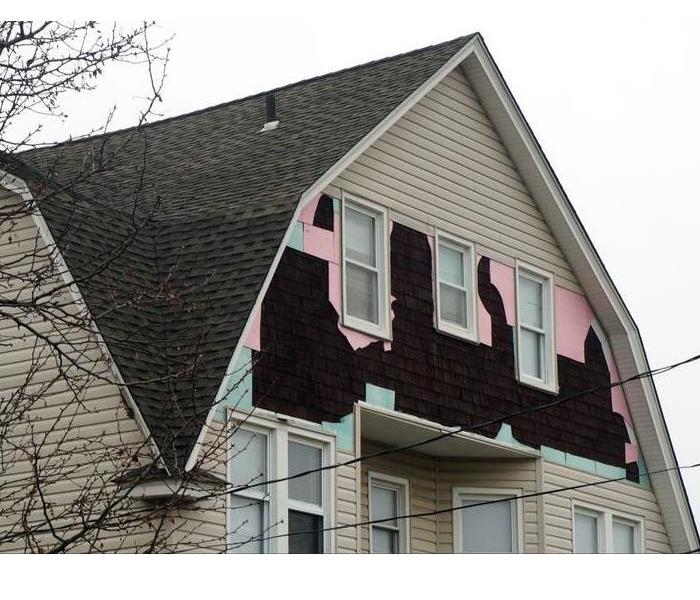 Damaging Winds Basics
Damaging Winds Basics
Severe Weather 101
Damaging Winds Basics
- What are damaging winds?
- Damaging winds are often called “straight-line” winds to differentiate the damage they cause from tornado damage. Strong thunderstorm winds can come from a number of different processes. Most thunderstorm winds that cause damage at the ground are a result of outflow generated by a thunderstorm downdraft. Damaging winds are classified as those exceeding 50-60 mph.
- Are damaging winds really a big deal?
- Damage from severe thunderstorm winds account for half of all severe reports in the lower 48 states and is more common than damage from tornadoes. Wind speeds can reach up to 100 mph and can produce a damage path extending for hundreds of miles.
- Who is at risk from damaging winds?
- Since most thunderstorms produce some straight-line winds as a result of outflow generated by the thunderstorm downdraft, anyone living in thunderstorm-prone areas of the world is at risk for experiencing this hazard.
People living in mobile homes are especially at risk for injury and death. Even anchored mobile homes can be seriously damaged when winds gust over 80 mph.
Call SERVPRO of St. Clair Shores if you experience Storm Damage to your property at (586) 741-5050.
What to do if your house gets struck by lightning
6/13/2017 (Permalink)
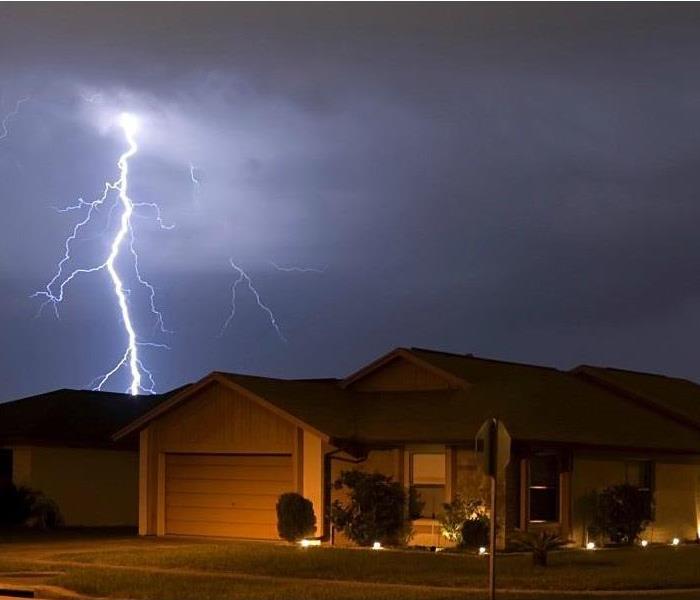 Dangers of lightning
Dangers of lightning
What to Do If Your House Gets Struck by Lightning
by Shawn Hedrick
What happens when lightning strikes a house?
If your home ever gets struck by lightning, you will hear a very loud, powerful boom that might shake your entire house. Many homes are built to withstand lightning strikes without succumbing to major damage. While staying inside your home, away from doors and windows, is the safest place to be during a storm, a couple of dangers exist inside the home when lightning is involved, regardless of whether you have lightning protection in place.
- Power Surges: When lightning strikes a house, the electricity often surges through a home’s wiring or plumbing system, searching for the quickest possible route to the ground. Make sure to unplug any electronics (especially valuable ones like TVs or computers), or they could be destroyed. Avoid running water during a lightning storm. You could get electrocuted if you are touching or standing near water or any electronics that are plugged into walls.
- Fire: When lightning shoots through a home, there’s a risk for fire. The most common place for a fire to ignite is in the attic, when a lightning bolt comes through the roof or top of the house. However, the heat from the electricity of a lightning bolt that runs through the walls inside your plumbing or wiring could start a fire as well. You may notice it immediately, or it may burn slowly inside the walls without your realizing it for some time.
What to do if your house gets struck by lightning?
- First, make sure everyone is okay. If you see fire or smell smoke, evacuate your home immediately.
- Call 911, and tell them your home was struck by lightning. Do this regardless of whether or not you detect a fire hazard.
- The fire department will come out to your property and assess the area for damage, including using thermal imaging cameras to search inside walls for heat that could or already has started a fire.
- Once your home is assessed and found to be safe, you will be able to return inside.
- Call your insurance company and explain what has happened.
- If there is damage to your home call us at SERVPRO of St. Clair Shores (586) 741-5050. We are always here to help – 24/7 our experts are standing by.
Is Your Tree Going To Fall Over?
5/31/2017 (Permalink)
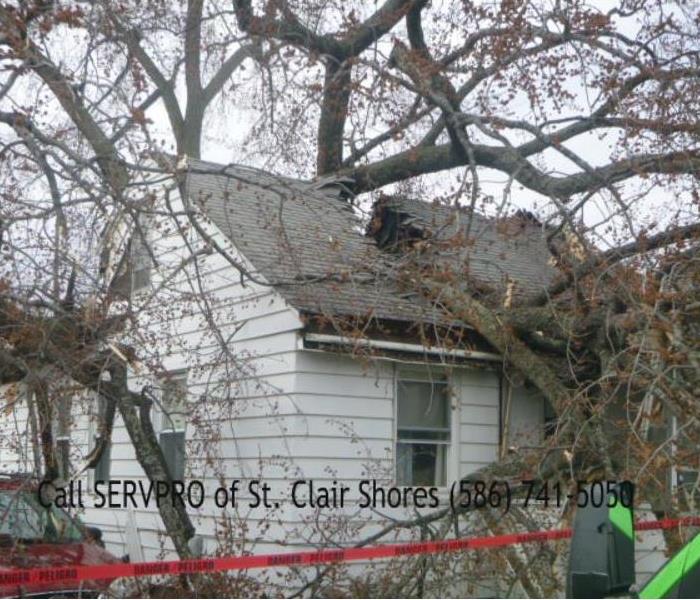 This happened in St. Clair Shores, MI
This happened in St. Clair Shores, MI
Is Your Tree Going to Fall Over?
By Houselogic.com
Sometimes a valuable tree uproots without warning; but most often, your tree sends distress signals before it topples.
A mature tree can account for as much as 10% of your assessed property value, depending on your market. With that much at stake, you sure don’t want to have to yell, “Timber!”
Here’s how to tell if one of your trees is in danger of falling over, and what you can do about it.
How to Inspect Your Trees
No one knows your trees as well as you. So, after they leaf out in the spring, leaf off in the fall, and after a big storm, walk around and look at your lovelies, top to bottom, noticing changes in foliage, branches, roots, and bark.
Inspect all sides of the tree, both up close and from a distance.
- Check for cuts in or peeling bark.
- Use binoculars to inspect the tree’s crown for dead wood and brown leaves.
Leaning Trees
Trees usually don’t grow straight, and a little lean is normal. But when your tree starts looking like the Tower of Pisa because of poor weight distribution or anchor root damage, it’s likely unstable. This is a good time to call an arborist.
Danger signs:
- Cracked or heaving soil, especially on the side opposite the lean.
- Exposed roots around the base of the tree.
Cures:
- Prune branches to distribute weight better.
- Brace the tree trunk with cables attached to stakes on opposite sides of the tree. Make sure to pad the tree before placing cables around tender bark.
Multiple Trunks
A tree with multiple trunks, or with splits in one trunk, can be unstable.
Danger signs:
- V-shaped or U-shaped multiple trunks are weak points for mature trees. The connective wood where the trunks come together may lose strength — and be more likely to split — with age and when storms occur.
- Cracks that extend deeply into or through the trunk.
Cures:
- An arborist can stabilize split trunks by attaching cables between trunks and branches high in the tree. Cables won’t repair existing damage, but they will increase the safety, especially in strong winds, and extend the life of your tree.
- This is dangerous work best left to experts, who will charge between $600 and $2,000; annual cable maintenance costs $100-$200.
Construction Destruction
Construction is tough on trees. Installing a driveway, putting on an addition, and digging up utility lines puts nearby trees under stress. Construction can damage shallow feeder roots, starving and destabilizing the tree. Construction equipment can scrape tree bark, providing a gateway set for disease and infestation.
Danger signs of construction stress (which can show up immediately or years later):
- Damaged bark
- Reduced, smaller, or no foliage
- Premature autumn color
- Mushrooms, conks, and carpenter ants at the base of the tree are a sign of decay and rot.
Cures:
Prevention is your best option. Before construction, set up a barricade around the tree; for each inch in diameter of the tree’s trunk, add a foot of protection. For example, an 8-inch-diameter tree needs a barricade with an 8-foot radius.
If the tree is damaged by construction, act fast:
- Prune to reduce weight and remove damaged limbs.
- Install cables or bracing rods.
- Water deeply.
- Aerate compacted soil around the root zone.
An Arborist to the Rescue
If you think your trees are changing, or you see any of the major warning signs above, they could be “hazard trees” — trees likely to fall and destroy what’s near them — like your house.
This is a good time to call a certified arborist. Get recommendations from friends or neighborhood list serves. Or, contact the International Society of Arboriculture, which maintains a list of certified arborists.
An arborist can help save your tree, or let you know if it’s beyond help. For example, bacteria or bugs could be harming your tree, and an arborist’s inspection ($150-$350) can diagnose which disease, trauma, or fungus is the culprit. An arborist also can determine if your tree is decaying internally, something that may not yet be obvious.
Arborists can either fix the problem, or calculate the risk of the tree falling and the likely objects it could damage. That calculation will help you decide if it’s worth spending money to keep the tree alive and upright, remove the tree, or just let nature take its course and topple the tree at will.
What About Lightning Risks?
If you live on the highest hill in the neighborhood, and own the tallest tree on the block, that’s pretty sweet. But it also increases your chances of a lightning strike.
If lightning strikes one side of a tree, your tree might close the wound and live its life. But if a bolt travels through the trunk, exploding wood and bark and damaging roots, it might be lights out.
To protect trees from lightning, an arborist can ground a tree with a copper cable system that extends from near the top of major trunks down to copper ground rods. These systems can cost $1,500, and may not be worth the money to protect a tree you could replace for $150.
If you’re thinking of planting a tree, you might want to avoid one of these trees close to your house.
Remember SERVPRO of St. Clair Shores is always Here to Help @ 586-741-5050. Save our phone number in your phone so that you can be Hero Ready if disaster strikes your home or business.
Ice Dam Damage
12/2/2016 (Permalink)
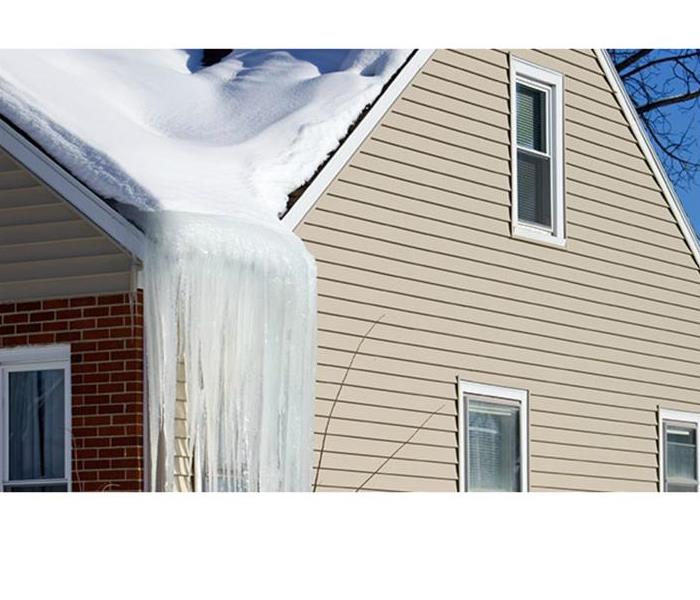 Ice Dam Damage
Ice Dam Damage
How to Identify and Help Remove an Ice Dam
© 2016 The Travelers Indemnity Company
Sometimes, even your best efforts to prevent an ice dam may not be enough. Knowing what an ice dam is, how to identify one and how to help remove it is important to protecting your roof and home from potential damage during the snowy, winter months.
What Is an Ice Dam?
Ice dams may form when water from melting snow freezes into ice at the edge of your roofline. Without proper roof snow removal, the ice that develops may grow large enough to prevent water from melting snow from properly draining off the roof. When the water is unable to drain from the roof, it may then back up underneath roof shingles and make its way into your home.
Do You Have an Ice Dam?
Most ice dams develop on the edge of your roof, but they may also form in other locations, depending on the slope, orientation and style of your roof. Be sure to monitor the weather and your roof for signs of ice dam formations.
- Look closely at the icicles around the exterior of your house. If the icicles are confined to the gutters and there is no water trapped behind them, then an ice dam has likely not formed. Nonetheless, icicles can be a precursor to ice dams. Depending on their location and size, icicles may also pose a danger if they fall off. Whenever possible, and if safe to do so, remove icicles from the exterior of your home, making sure not to stand directly beneath them. If you cannot safely reach the icicles from the ground, consider calling SERVPRO of St. Clair Shores to assist in their removal.
- Check for water stains or moisture in your attic or along the ceiling of exterior walls of your house. Water stains or moisture may be an indication that an ice dam has formed and water has penetrated the roof membrane.Removing an ice dam from your roof immediately after spotting the signs can be critical to helping prevent damage to your home. One way to remove an ice dam is to melt it using calcium chloride ice melt.
HOW TO REMOVE AN ICE DAM:
- Step 1. Using a roof rake, remove snow 3-4 feet from the edge of your roof, being careful not to damage the roof covering or to allow snow to build up around walking paths or to block emergency exits.
- Step 2. Use a calcium chloride ice melt product, which you can generally purchase from your local hardware store. Be sure not to use rock salt or sodium chloride, which can damage your roof.
- Step 3. Fill a nylon stocking with the calcium chloride ice melt.
- Step 4. Safely place and position the calcium chloride-filled nylon stocking vertically across the ice dam so that it can melt a channel through the ice.
- Step 5. Cover and protect any shrubbery and plants with lightweight tarps near the gutters or downspouts for the duration that the calcium chloride stockings remain in place. This is important because the calcium chloride-saturated water dripping from the roof may damage the shrubbery and plants.
- REMEMBER: Using a ladder in snowy and icy conditions may be dangerous. If you cannot safely reach the roof, consider calling SERVPRO of St. Clair Shores at (586) 741-5050.
Getting Your Home Ready for Winter
12/2/2016 (Permalink)
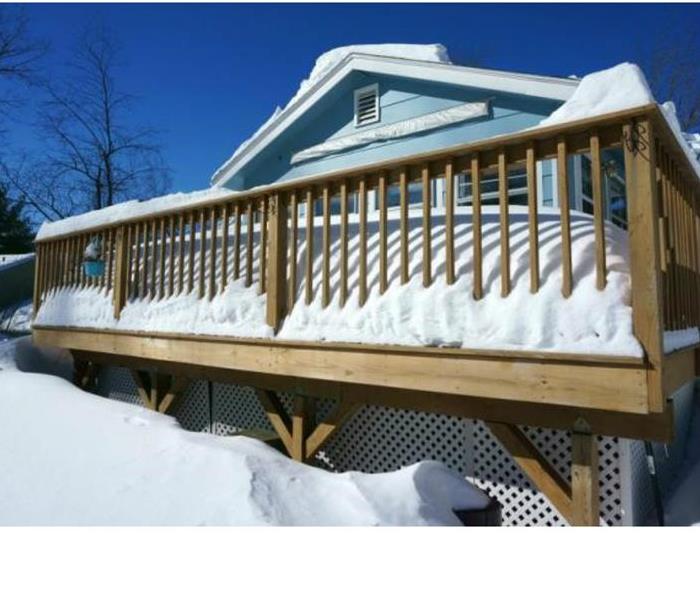 Getting Your Home Ready for Winter
Getting Your Home Ready for Winter
Getting Your Home Ready for Winter by Bob Formisano Home Repair Expert
Get your home ready for winter!. Photo Credit: Fotolia
Updated November 12, 2016.
Wood-burning Fireplace, Chimney and Flue
Although largely ignored in warm weather, the wood-burning fireplace and chimney can be a major source of cold air leaks and other issues in winter. So the chimney and fireplace need some inspection and service before winter sets in.
- Check to make sure the chimney is clear of any nests from birds, squirrels or other small animals.
- Check flue damper operation. Make sure it opens and closes fully, and that it is can be locked in the open or closed position.
- Check chimney draft. Make sure the chimney will draw up the fire and smoke properly. Test this by taking several sheets of newspaper and rolling them up. Then with the fireplace damper in the open position, light the newspaper in the fireplace. The smoke should rise up the chimney. If it doesn't, you have an obstruction and need to call a professional in to clean the chimney of creosote and ash and possible debris.
- If it has been several years (or never) since you had your fireplace chimney cleaned, you should have it done by a professional chimney sweep. Definitely not a fun DIY project.
- Inspect the fire brick in the fireplace. If you see any open mortar joints, have them repaired immediately A fire can spread into the stud wall behind the masonry fire brick through open mortar joints.
How to Protect Pipes from Freezing
Plumbing is especially susceptible to cold weather and freezing. Burst pipes from freezing can cause some of the most expensive repairs in the home. So let's go over some of the basics to make you have them covered.
- Insulate exposed piping: If you have any exposed water or drain piping in uninsulated spaces, such as in a crawlspace, attic, outside walls, etc., make sure to insulate them with foam insulation at a minimum. Ideally, you should wrap them with electrical heating tape first, then insulate them.
- Exterior faucets: Known as hose bibbs or sill-cocks, the exterior faucet needs to have its water supply turned off inside the house, and you also need to drain water from it by opening up the exterior faucet. You may also want to consider an insulated cover for the hose bibb. And remember to disconnect your garden hoses from the sill cocks or outside faucets, and drain them if you store them outside.
- Seasonal shut-down: If you are shutting down a property for several months you should always shut off the water supply and drain the plumbing system. If a leak were to occur without occupancy, the damage could be catastrophic. See How to Drain Your Home's Plumbing System.
- If you don't use your fireplace often and it leaks air, you can cut a piece of fiberglass insulation and stuff it into the fireplace behind your glass doors to block the cold air coming down the chimney. Of course, you need to remove this when you make a fire...
Roof
Moving to the outside of the home, you should do a quick check of the roof. Either hire someone to inspect the roof if you are not comfortable safely doing this yourself, or inspect it yourself, wearing well-fastened shoes with non-skid soles.
- Check the roof for missing or damaged shingles, and have them replaced.
- Check flashing around chimneys and other roof projections, which are often the source of leaks. Have repairs made, if necessary.
- Make sure gutters and downspouts are clean, having no leaves. Wet leaves remaining in the gutters over winter add significant weight and volume to the gutter when frozen and increase the risk of damage.
Severe Weather Facts
8/11/2016 (Permalink)
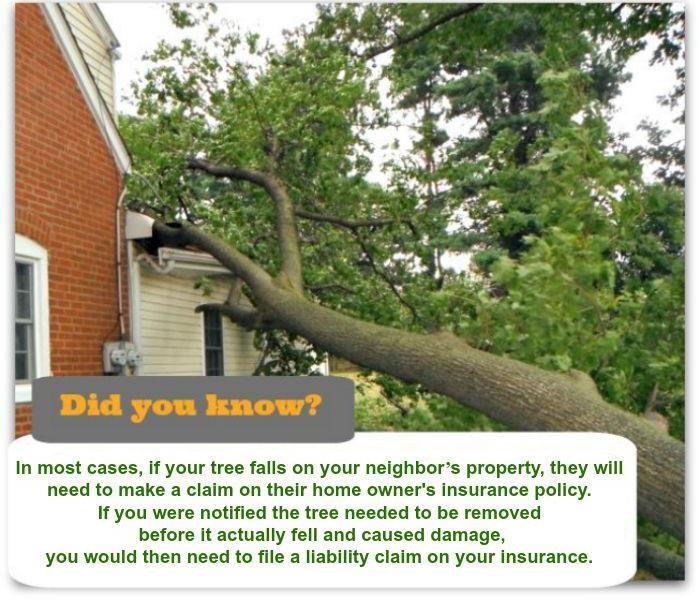 St. Clair Shores Storm Damage
St. Clair Shores Storm Damage
Did you know these facts about Severe Weather?
What is a severe thunderstorm? A thunderstorm is classified as “severe” when it contains one or more of the following: hail one inch or greater, winds gusting in excess of 50 knots (57.5 mph), or a tornado.
How many thunderstorms are there? Worldwide, there are an estimated 16 million thunderstorms each year, and at any given moment, there are roughly 2,000 thunderstorms in progress. There are about 100,000 thunderstorms each year in the U.S. alone. About 10% of these reach severe levels.
Did you also know that thunderstorms are most likely in the spring and summer months and during the afternoon and evening hours, but they can occur year-round and at all hours of the day.
Under the right conditions, rainfall from thunderstorms causes flash flooding, killing more people each year than hurricanes, tornadoes or lightning. Lightning is responsible for many fires around the world each year, and causes fatalities. Hail up to the size of softballs damages cars and windows, and kills livestock caught out in the open. Strong (up to more than 120 mph) straight-line winds associated with thunderstorms knock down trees, power lines and mobile homes. Tornadoes (with winds up to about 300 mph) can destroy all but the best-built man-made structures.
At SERVPRO of St. Clair Shores we are available 24/7 for any of your storm related emergency needs, including flooding, storm damage to your property or tree damage to your home or business. Save our phone number in case of emergency – SERVPRO of St. Clair Shores (586) 741-5050.
What to do if Lightning Strikes
7/6/2016 (Permalink)
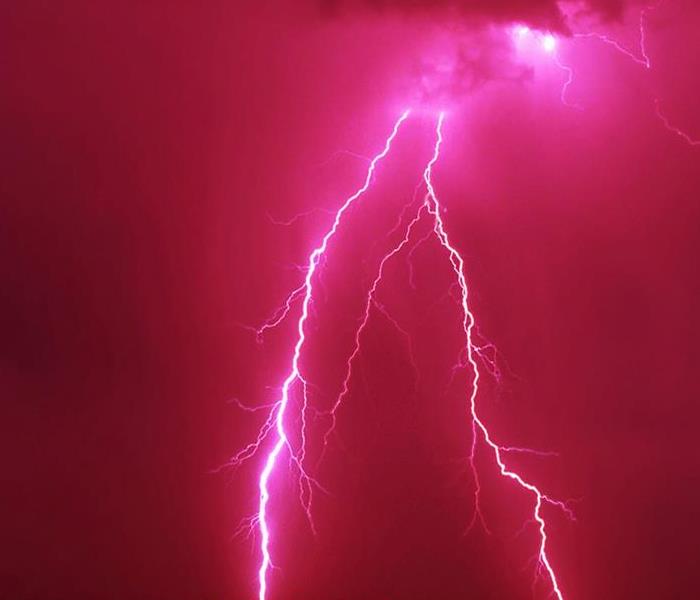 Lightning Strikes
Lightning Strikes
If lightning strikes you or someone you know, call 9-1-1 for medical assistance as soon as possible. The following are things you should check when you attempt to give aid to a victim of lightning:
- Breathing - if breathing has stopped, begin mouth-to-mouth resuscitation.
- Heartbeat - if the heart has stopped, administer CPR.
- Pulse - if the victim has a pulse and is breathing, look for other possible injuries. Check for burns where the lightning entered and left the body. Also be alert for nervous system damage, broken bones and loss of hearing and eyesight.
After the storm passes remember to:
- Never drive through a flooded roadway. Turn around, don’t drown!
- Stay away from storm-damaged areas to keep from putting yourself at risk from the effects of severe thunderstorms.
- Continue to listen to a NOAA Weather Radio or to local radio and television stations for updated information or instructions, as access to roads or some parts of the community may be blocked.
- Help people who may require special assistance, such as infants, children and the elderly or those with access or functional needs.
- Stay away from downed power lines and report them immediately.
- Watch your animals closely. Keep them under your direct control.
Thunderstorms & Lightning
7/6/2016 (Permalink)
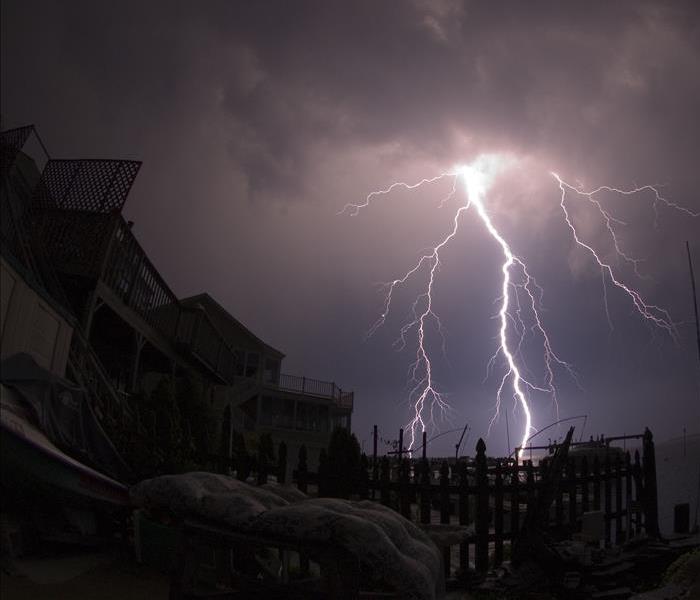 Storm Damage
Storm Damage
Thunderstorms & Lightning
All thunderstorms are dangerous. Every thunderstorm produces lightning. While lightning fatalities have decreased over the past 30 years, lightning continues to be one of the top three storm-related killers in the United States. On average in the U.S., lightning kills 51 people and injures hundreds more. Although most lightning victims survive, people struck by lightning often report a variety of long-term, debilitating symptoms.
Other associated dangers of thunderstorms include tornadoes, strong winds, hail and flash flooding. Flash flooding is responsible for more fatalities – more than 140 annually – than any other thunderstorm-associated hazard. Dry thunderstorms that do not produce rain that reaches the ground are most prevalent in the western United States. Falling raindrops evaporate, but lightning can still reach the ground and can start wildfires.
If you property is affected by storm damage, call SERVPRO of St. Clair Shores at (586)741-5050






 24/7 Emergency Service
24/7 Emergency Service





























































